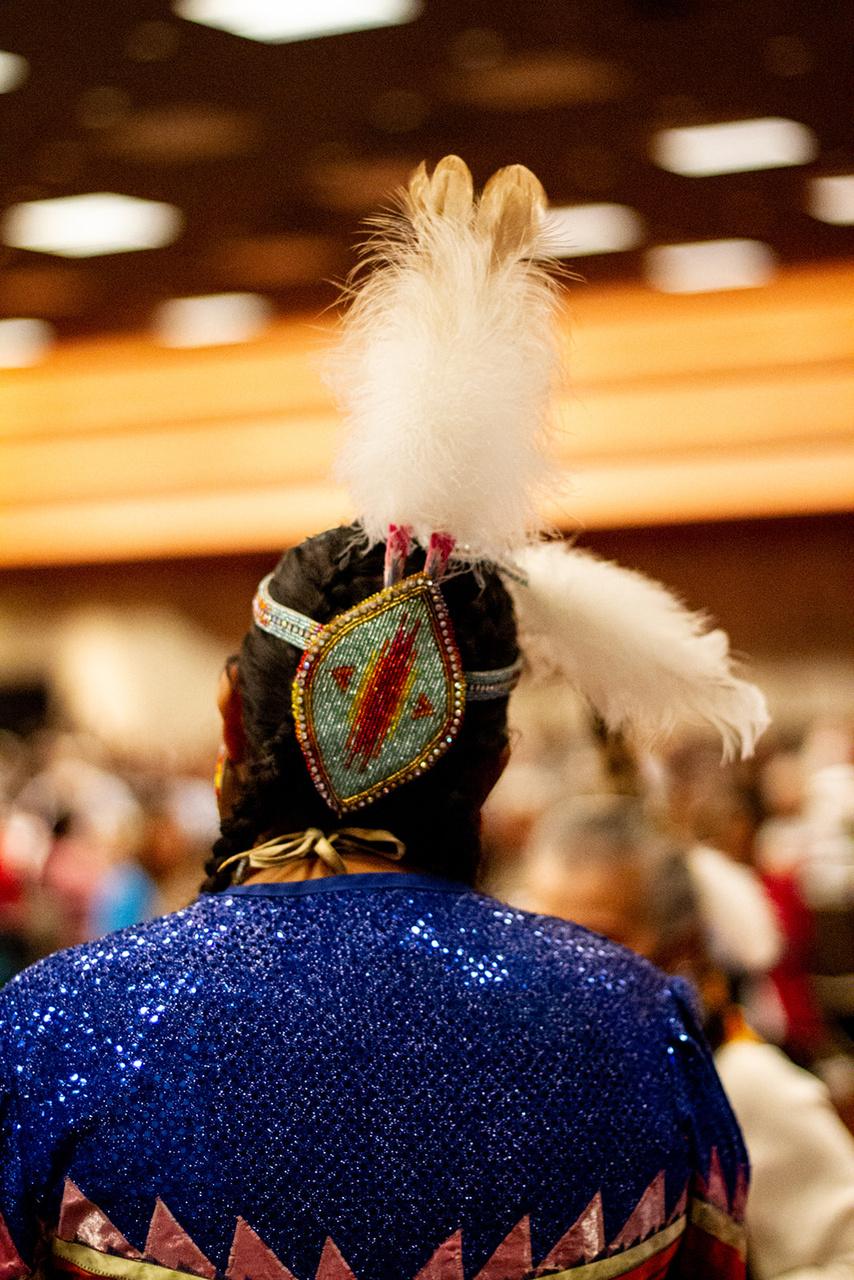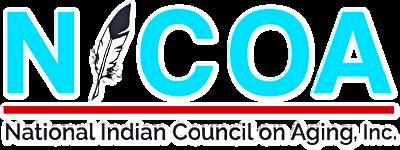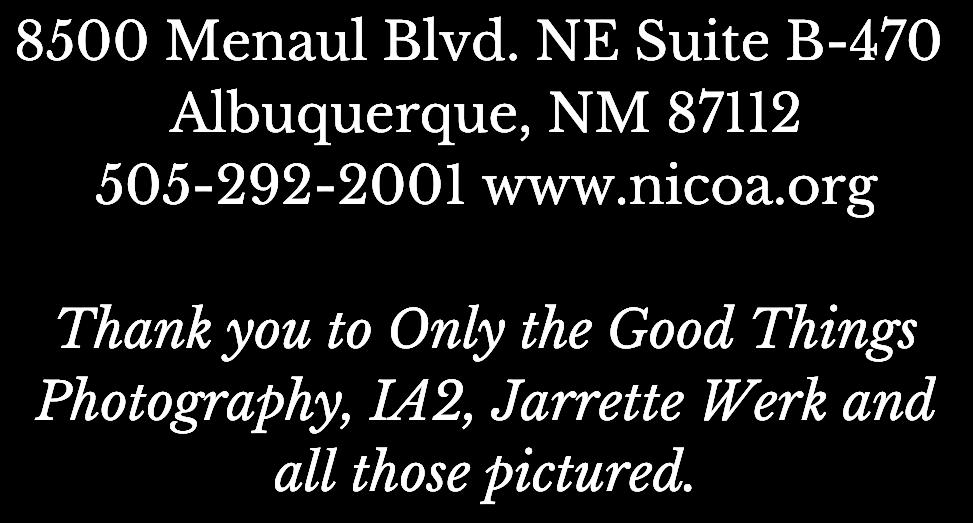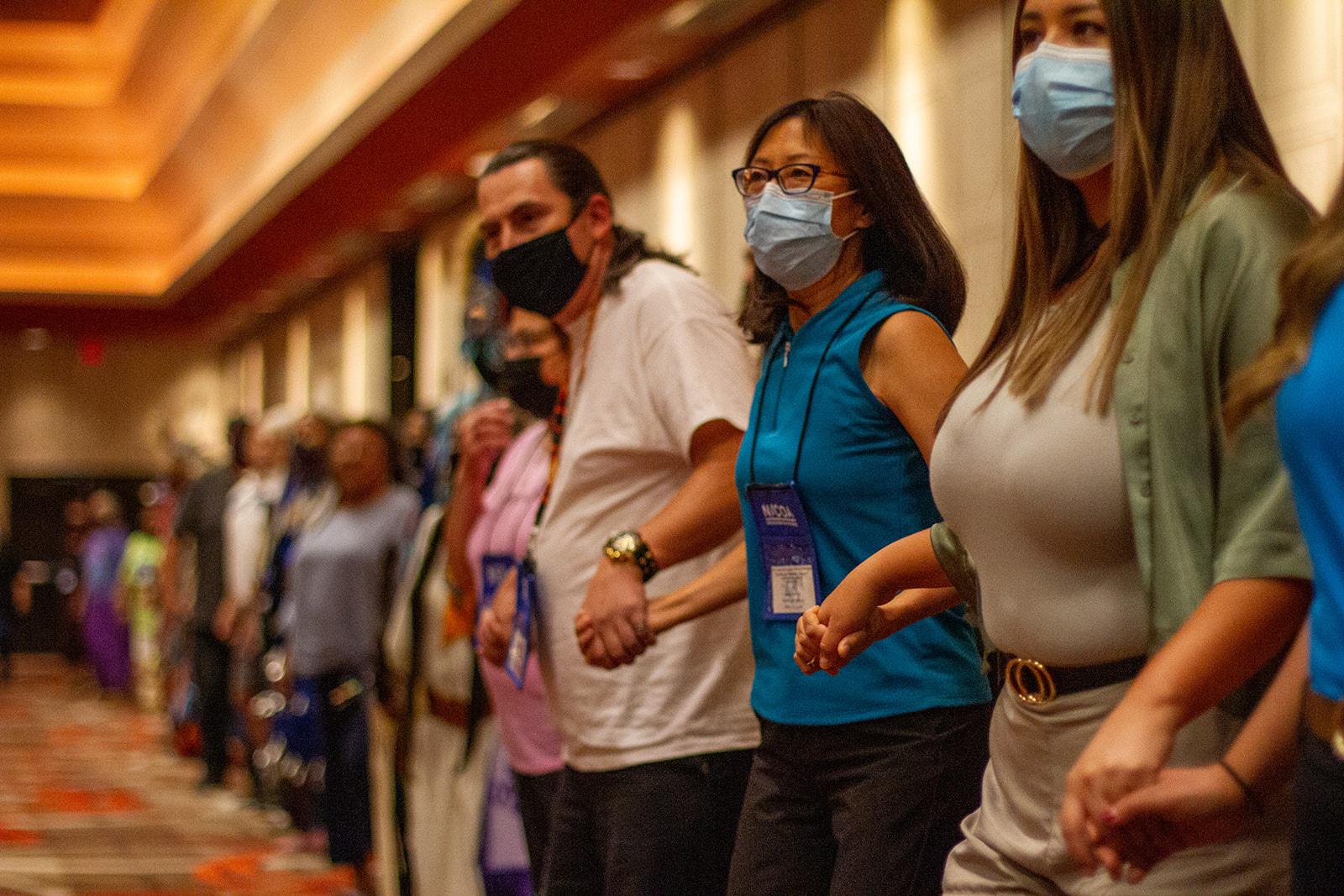

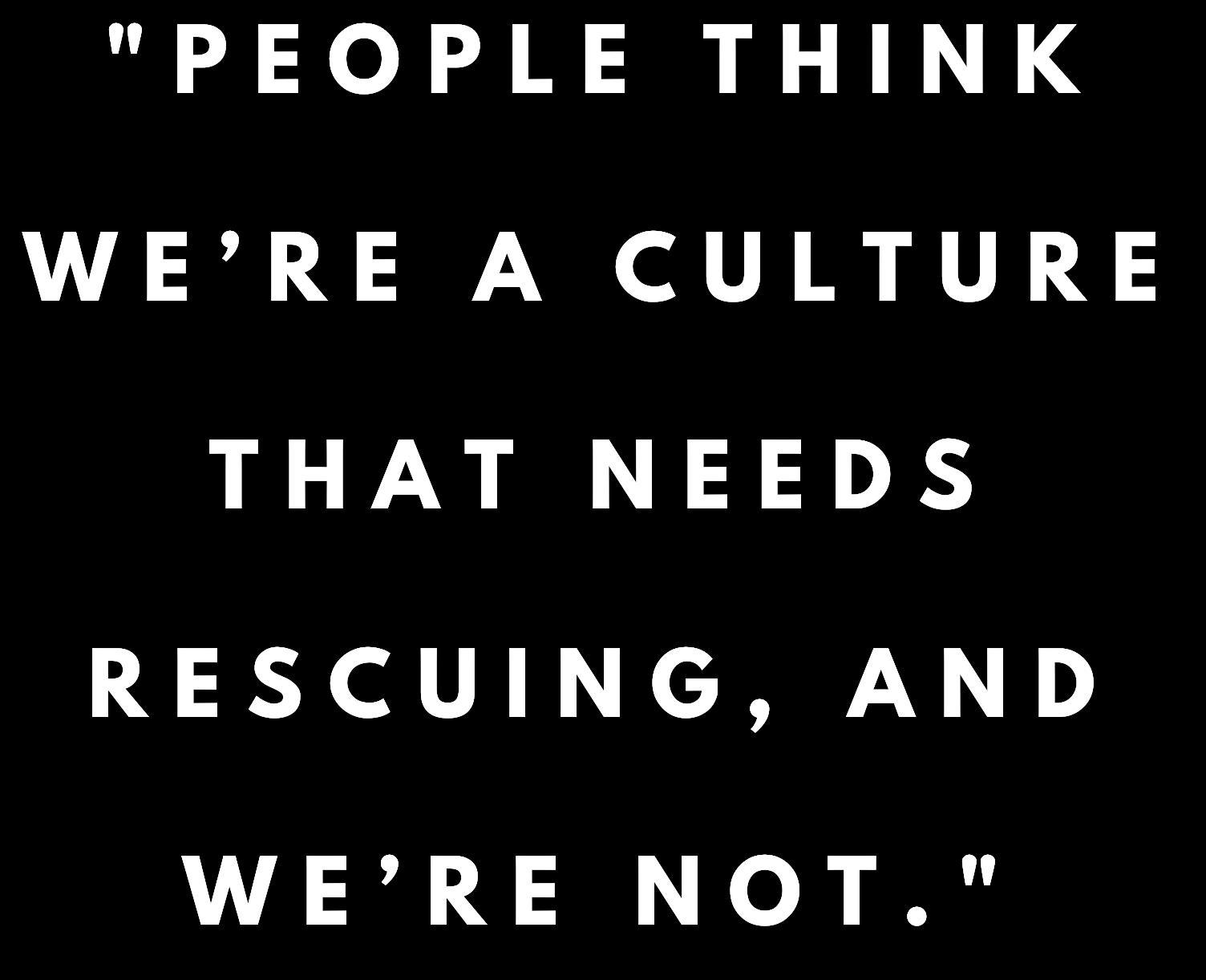


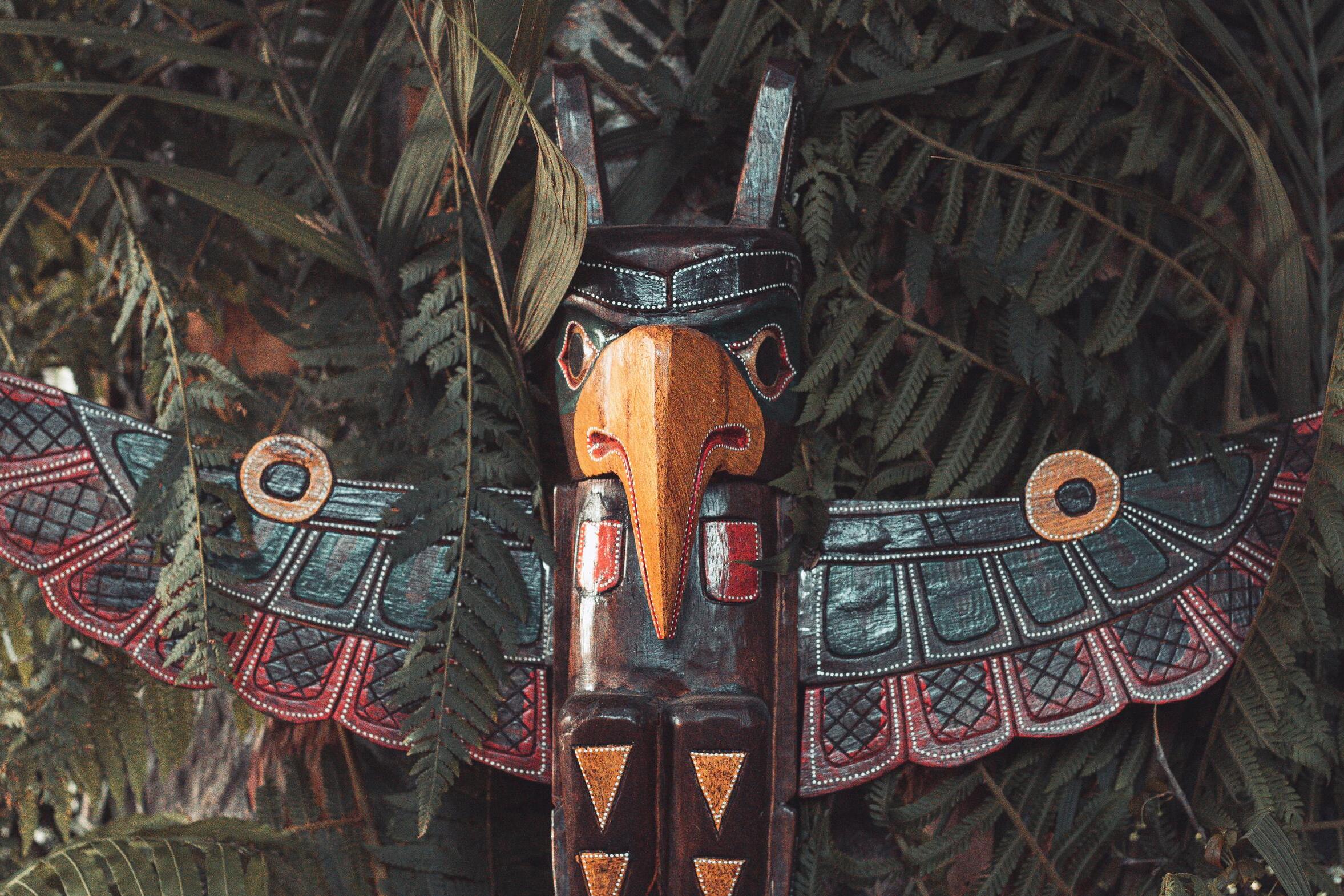

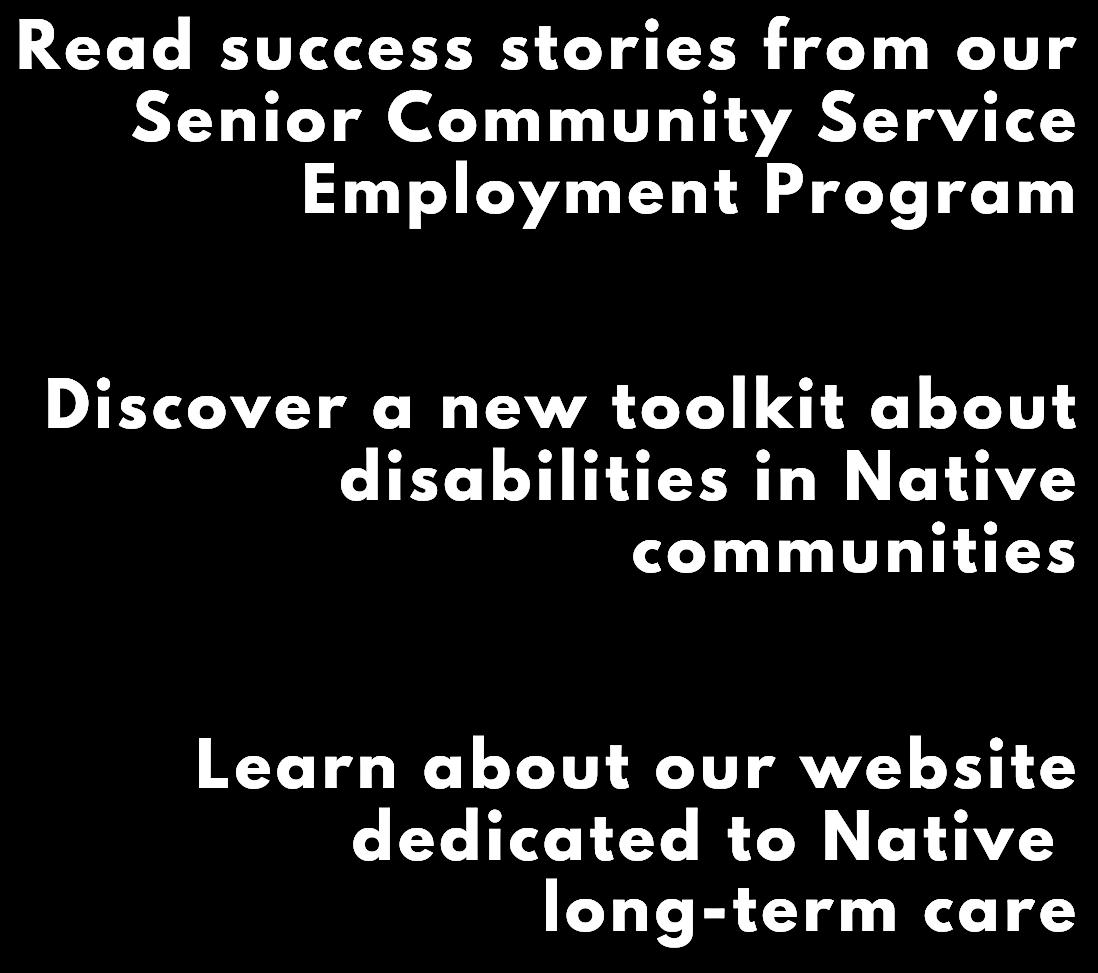

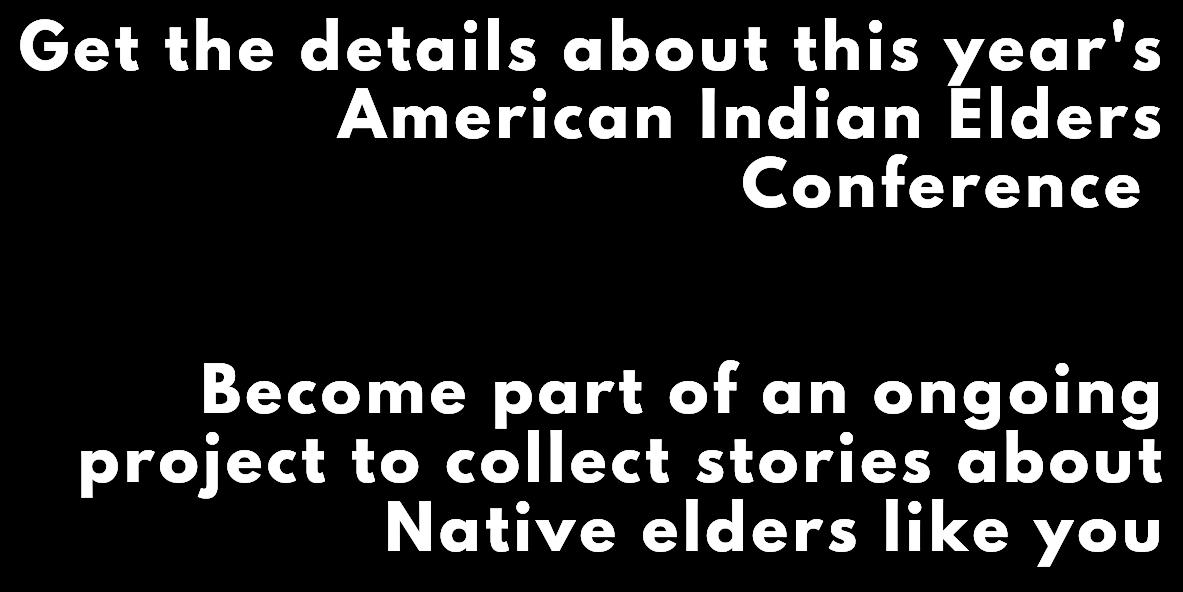







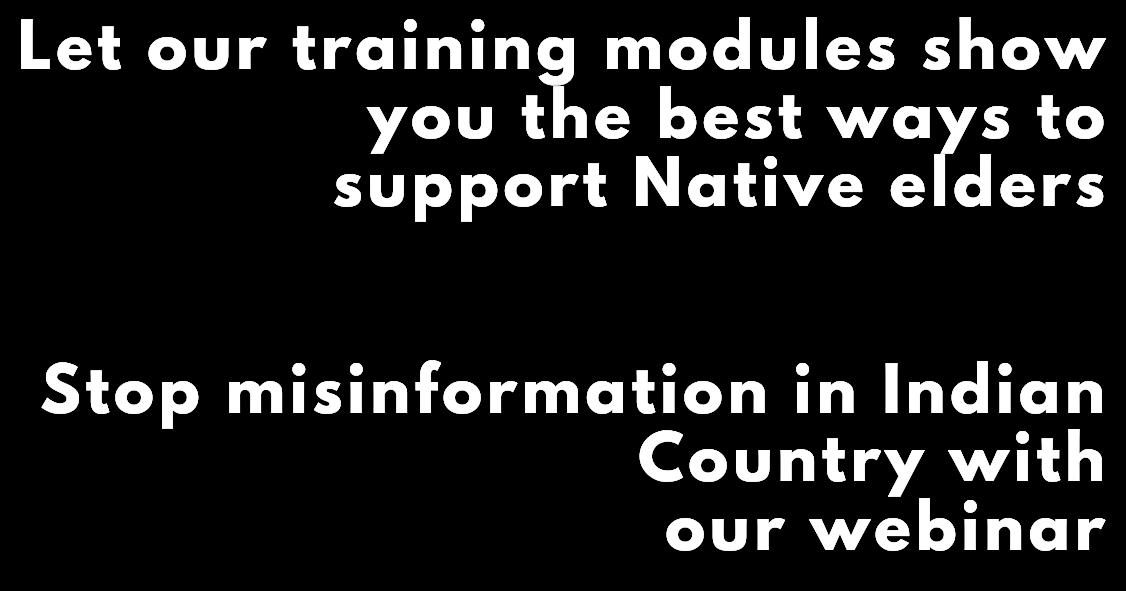





Welcome to the inaugural issue of our magazine, dedicated to showcasing the incredible work of the National Indian Council on Aging (NICOA) As a nonprofit organization founded in 1976 by visionary members of the National Tribal Chairmen's Association, NICOA has been a steadfast advocate for the needs of aging American Indian and Alaska Native elders.
Within these pages, you will discover a wealth of knowledge and insights that will empower and uplift our Native elder community We strive to create a space that celebrates the wisdom, strength, and resilience of our elders, while addressing the challenges they face and advocating for meaningful solutions.
We invite you to embark on this journey with us as we delve into the stories of remarkable individuals whose lives have been touched by NICOA. Together, we will uncover the transformative power of community support, the importance of long-term care, and educational resources to advocate for the rights and well-being of our Native elders.
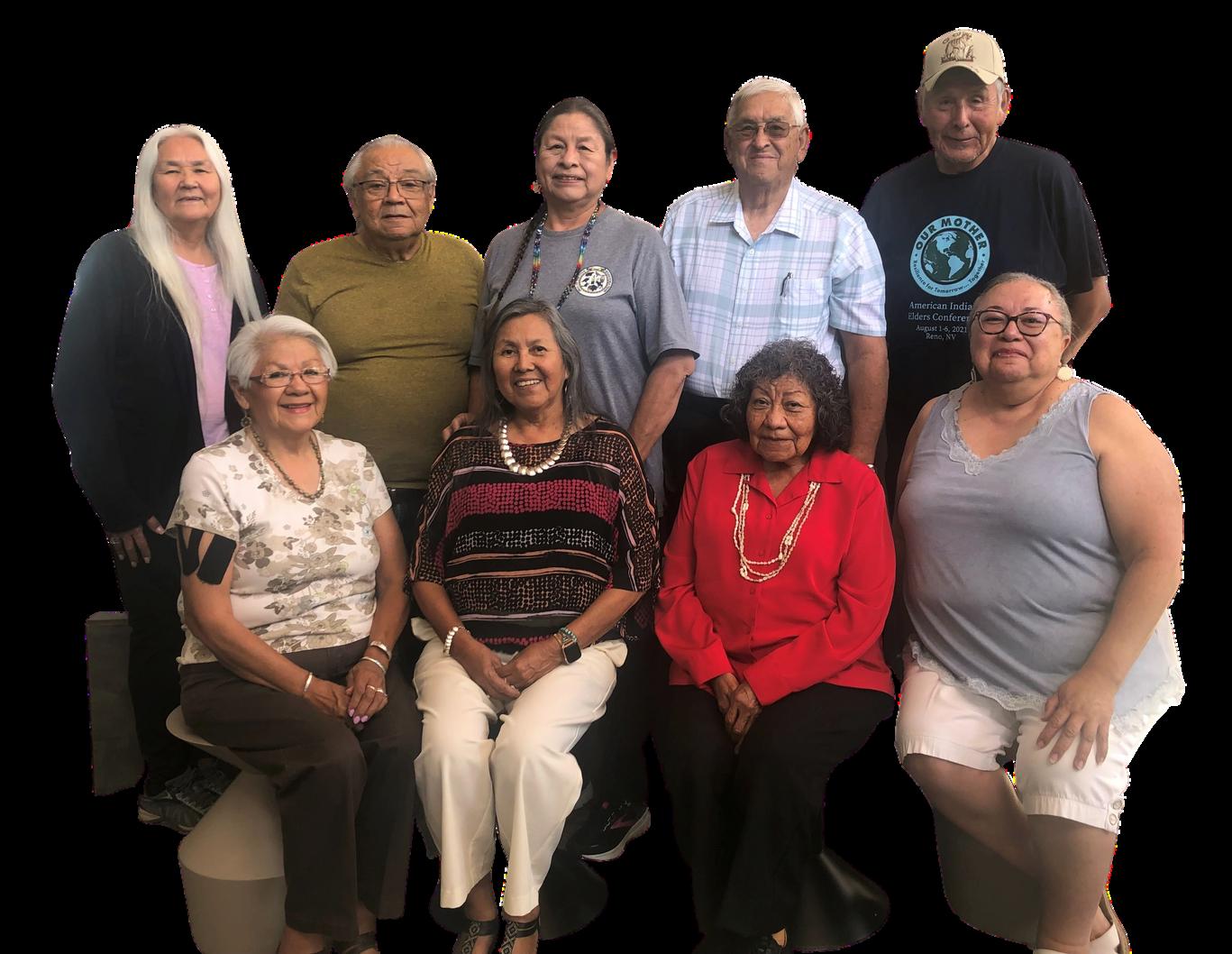
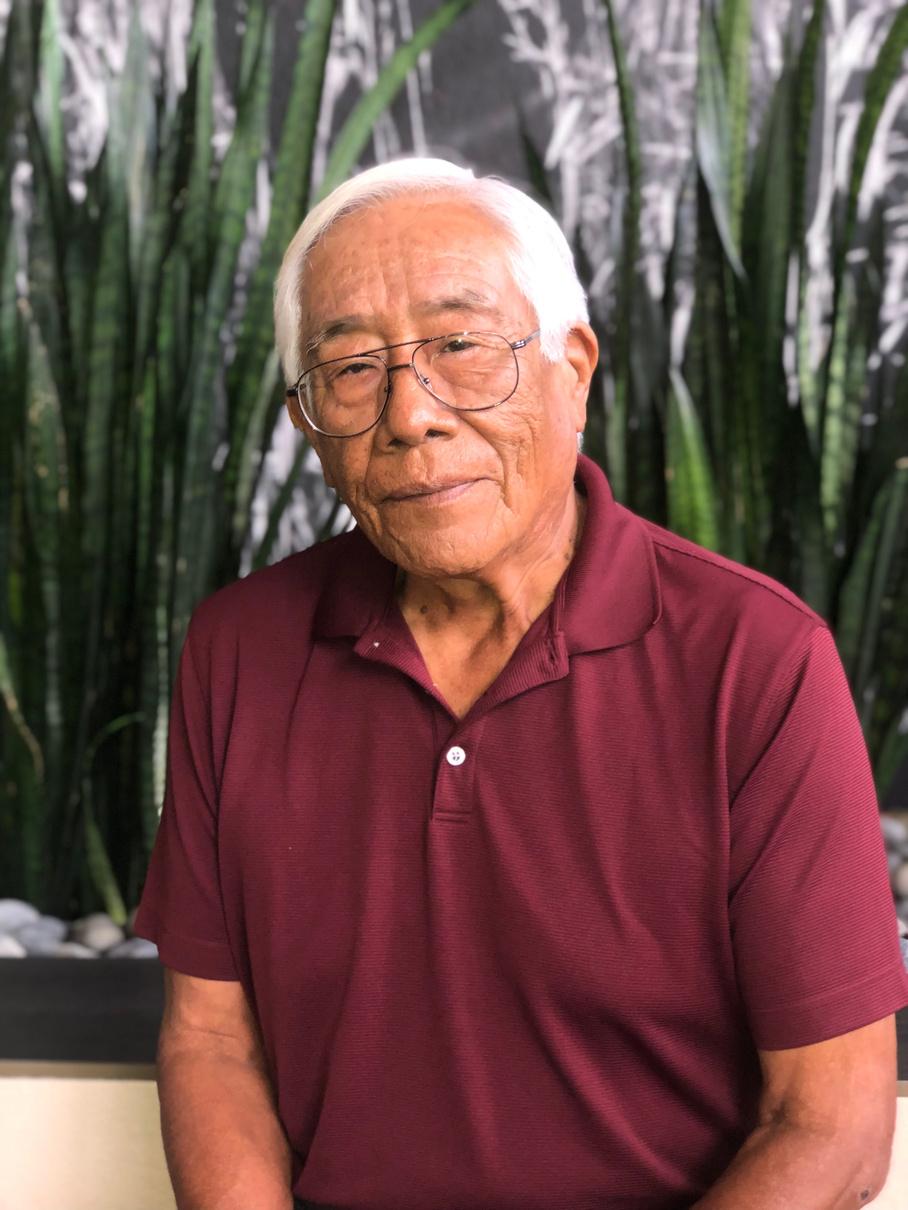
We hope that this magazine serves as a source of knowledge, inspiration, and unity, as we work towards a future where every Native elder can thrive and be honored for their invaluable contributions to society
Dear Friends, Larry Curley
Executive Director

2023-2024 Membership Available
Do you want to improve aging services for American Indian and Alaska Native elders?
Become an advocate by joining NICOA and learn more about how to support Native elders! NICOA is the premier organization on Native aging, and we invite you to become a member Anyone can become a member, regardless of their age or tribal affiliation (or lack thereof).
All elders are encouraged to join and have their voices heard Be an important part of a national membership network and become a NICOA member by applying online or by mail. Memberships are for two calendar years
Membership offers many valuable benefits. In addition to helping us continue our work for the elders we serve, as a member, you will receive NICOA’s online bimonthly newsletter, legislative updates on important issues and resolutions affecting elders, a NICOA pin, voting privileges and discounted registration fees to attend our biennial conferences
You must apply for or renew your membership before registering for the conference. Pricing is based on your membership type NICOA’s membership is effective through December 31, 2024.
Associate (Non-Voting) Membership
NICOA has non-voting, associate memberships for individuals who do not meet the age and/or tribal enrollment requirements.
Non-voting associate members include American Indians or Alaska Natives under the age of 55 as well as non-Indians of all ages Nonvoting members are the stakeholders that ensure services reach Native elders, and their advocacy amplifies the voices of our elders
Voting Membership
A voting member can be any American Indian or Alaska Native elder age 55 or older from a federally recognized tribe These members must be enrolled members of an American Indian or Alaska Native tribe, band or combination of bands and tribes, recognized by the U.S. Department of the Interior

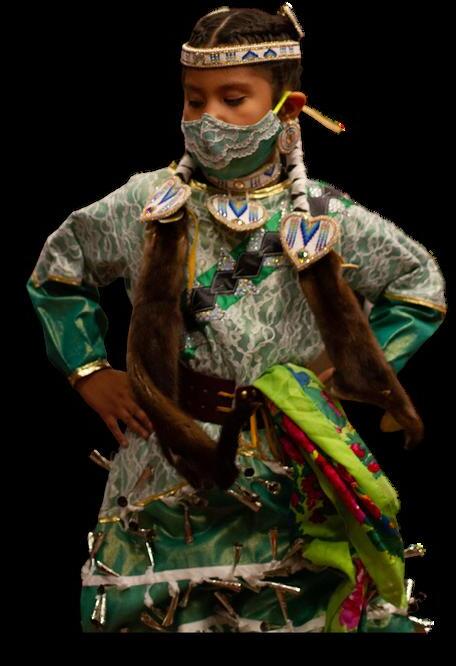
Qualifying as a voting member is the most costeffective way to attend NICOA’s American Indian Elders Conference If you want to vote in your regional caucus session during the conference, you must be a registered voting member of NICOA.
Voting members actively participate in regional caucus sessions representing each of the 12 NICOA regions. They
also participate in the election of board members, submit aging-specific resolutions for approval at the general council meetings, revise bylaws and develop collective aging policy agendas for NICOA to advocate in Washington, D.C.
Become a member or renew your membership for 20232024 online at www nicoa org We look forward to welcoming you, listening to you and working to provide services for you If you have any questions, call NICOA at (505) 292-2001
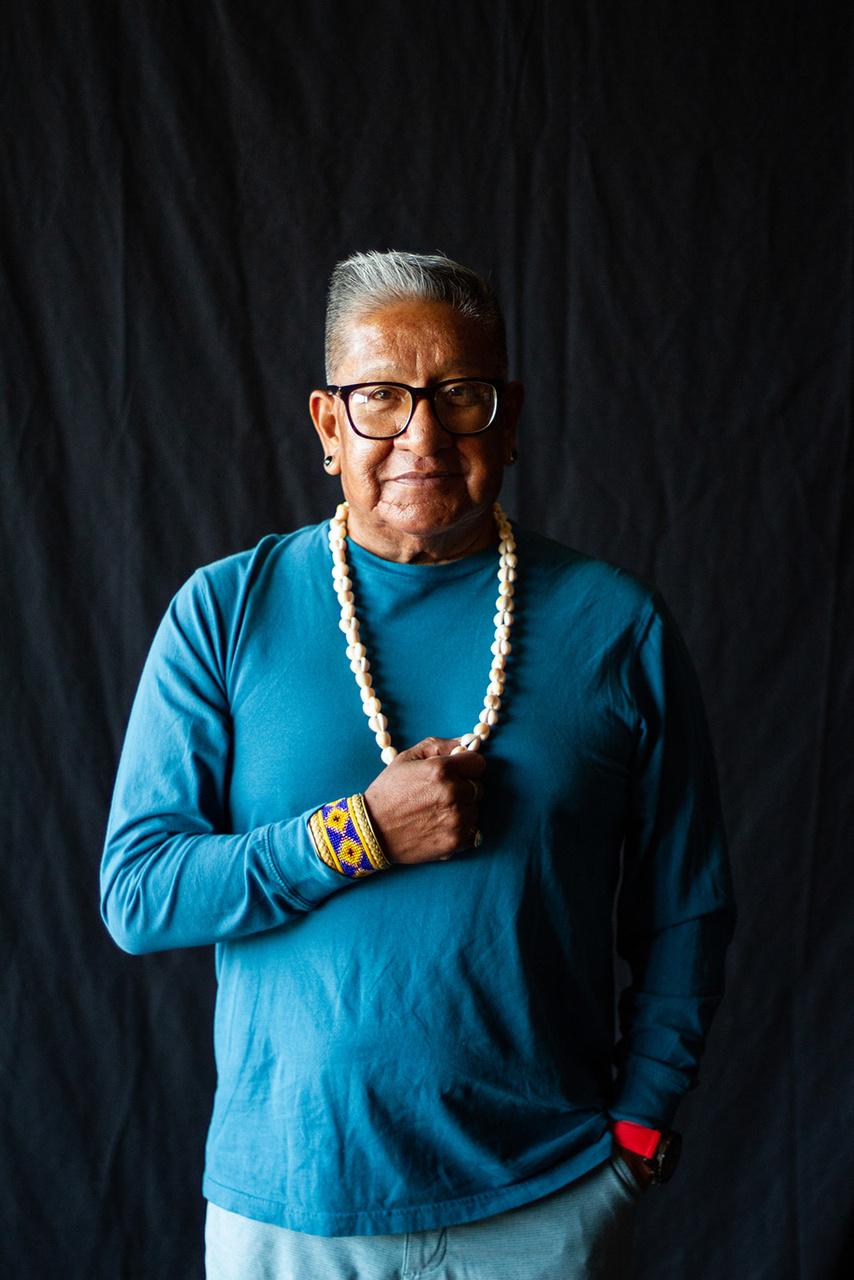
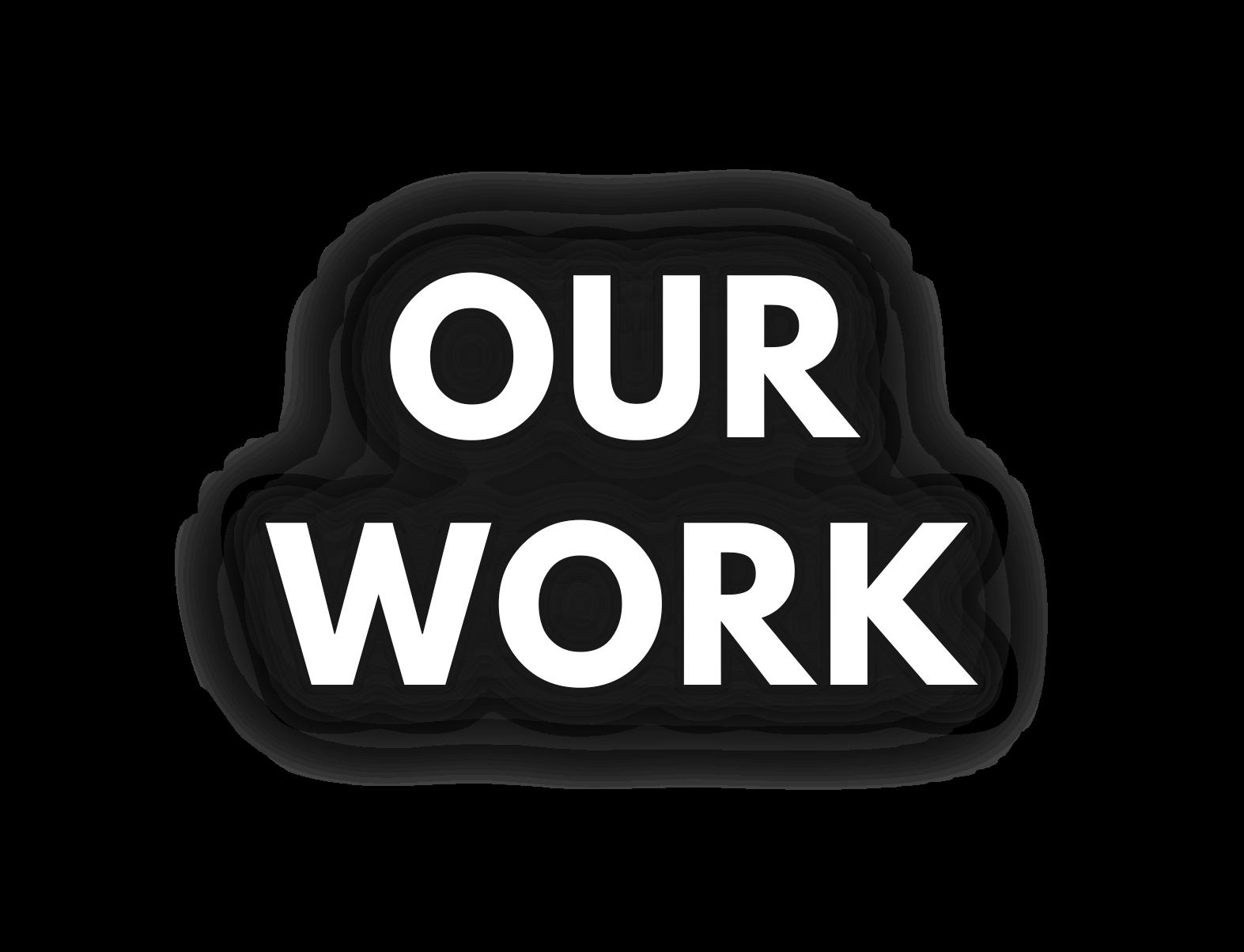
We are thrilled to have this platform to highlight the transformative impact of NICOA's Senior Community Service Employment Program (SCSEP) and share inspiring stories of individuals who have benefited from it.
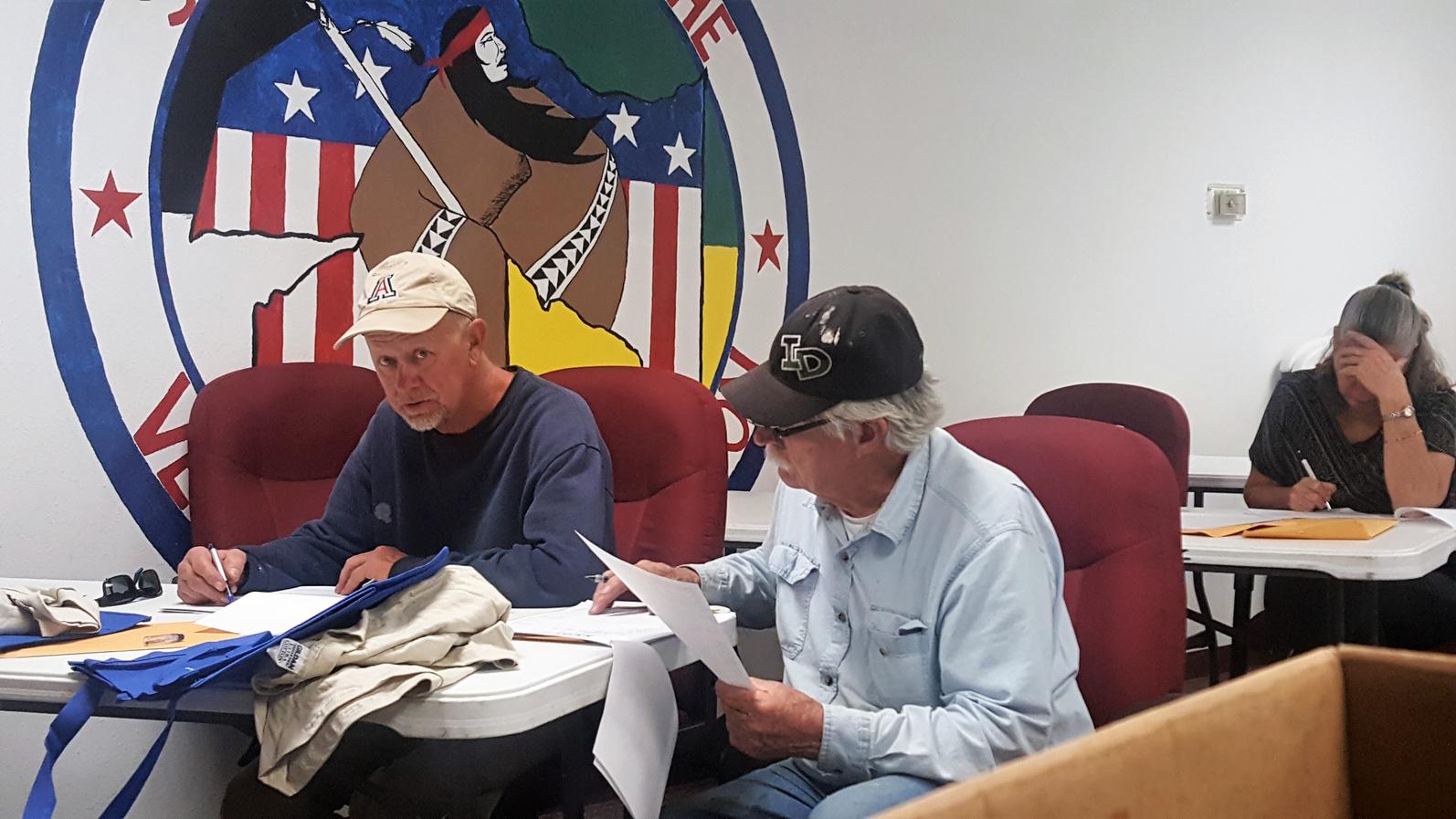
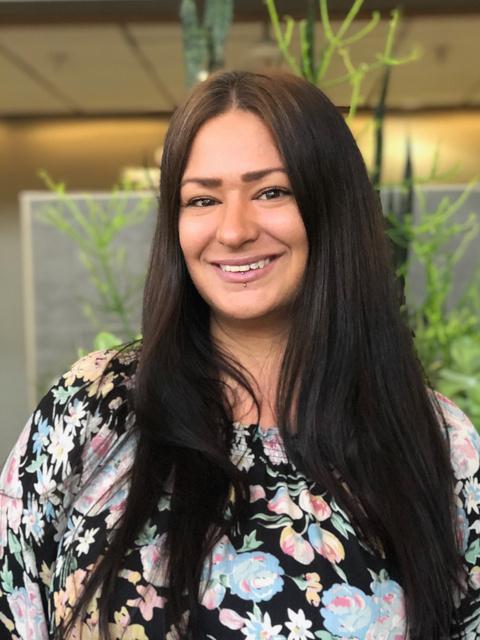
SCSEP, a vital initiative under the Older Americans Act, has been instrumental in providing meaningful employment opportunities to elders across the nation. Our magazine aims to shed light on the program's mission to empower elders by connecting them with employment, training, and resources that help them thrive in their communities.
We extend our heartfelt gratitude to the participants, program administrators, community partners, and employers who have contributed to the success of SCSEP. Your dedication and support have made a tangible difference in the lives of countless elders, and we are honored to showcase your achievements
For more information on NICOA’s SCSEP or to find a program in your area, call 505-292-2001 or visit our website at www nicoa org
SCSEP Leslie Maly
 SCSEP Director
SCSEP Director
Help in North Dakota
NICOA's Senior Community Service Employment Program (SCSEP) is getting participants job ready and in the workforce, reports North Dakota KX News. The local television news station interviewed several NICOA employees about their experience.
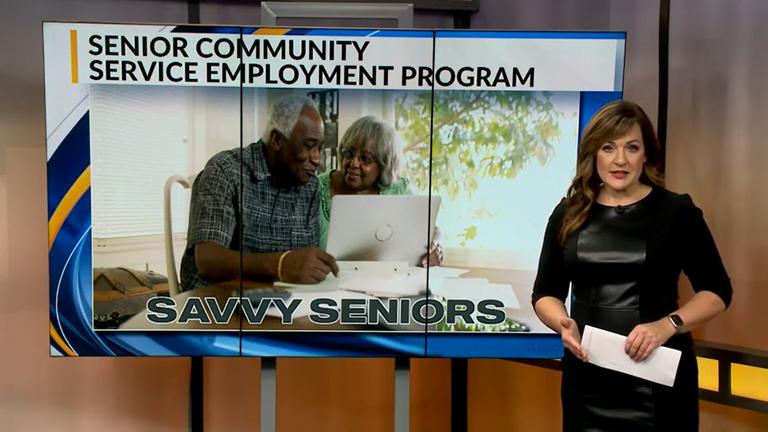
Lynn Wise, the North Dakota Program Manager for SCSEP, told KX News that poverty and loneliness are the two biggest challenges for many elderly individuals right now.
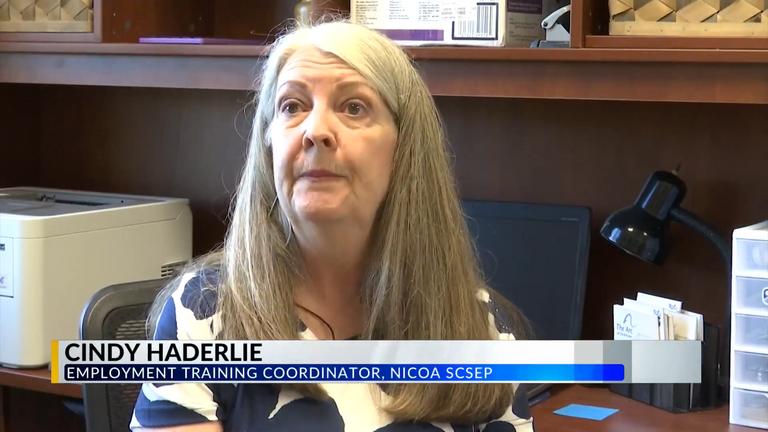
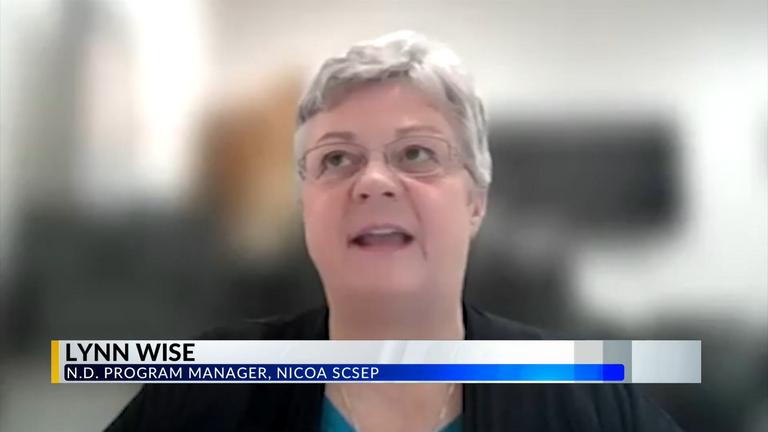
“They’re home sitting there depressed, need money, don’t know what to do We can come in and help them, and I’ve just seen personalities go from one end of the spectrum to the other, and it’s really fun to watch that,” said Wise. “There are so many people that are over 55 that cannot get jobs And the knowledge that they have is just unbelievable, and it's basically just kind of going to waste.”
Wise says the barriers to finding employment vary from one individual to the next.
“There are just a lot of people who have disabilities, people who were formerly
incarcerated, whose backgrounds prohibit them from getting jobs Those are the type of people that the program helps the most. There are just people that are really struggling, and that need the money; they want to get back into the workforce,” Wise said.

The program is designed to help each participant gain the skills they need to work Participants are also paid an hourly wage while they train, and the training wages do not affect SNAP or housing assistance. A majority of participants need to sharpen their computer and technology skills, but they’re many reasons people join the program.
Cindy Haderlie retired from working in human resources, but she decided she wasn’t quite ready to fully retire emotionally, or financially.
“When I came up here, I didn’t even have Social Security yet. So I needed something to kind of subsidize my retirement And it just worked out perfectly,” Haderlie said.
Wise also participated in the program, for different reasons
“I’ve gone through this myself when I switched over jobs I was in a job for 20 years And when I put my resume in, they looked at the dates and it’s like, ‘Oh, yeah,’ and you don’t
Continued on page 8
Skill building

Participants in NICOA's Senior Community Service Employment Program (SCSEP) can take part in a variety of service assignments where they receive job training at a host agency site. They can also participate in various trainings through NICOA partners and community organizations Such training includes basic skills, ESL, computer literacy, and telephone systems
Once an elder job seeker is accepted to the program, they become a participant of SCSEP and receive temporary and useful part-time training, job experience, resume building, and grant sponsored income to prepare them for finding employment in the community NICOA prepares its participants to become more highly skilled applicants.
When Sandy Simon started training at The Arc of Dickinson in North Dakota, she had no computer skills. She recently had back surgery and was concerned about not having enough paid hours Once she was trained on a computer course, she was able to sign in and learn how to navigate the website Now Sandy has logged over 55 hours of courses completed on the computer. She also learned how to enter her hours into an app on her smartphone, and even taught other participants at her host agency how to put their hours into the work computer.
Deb Brych started NICOA’s SCSEP after getting hurt She didn’t have any experience with computers and was scared to use them She has since mastered many of the online courses offered and trains at the Welcome House, a local homeless shelter in Bismarck, North Dakota. She enjoys her training and does the online courses as often as she can She has finished well over 50 courses so far and is still going strong She now has the confidence to do office work involving computers
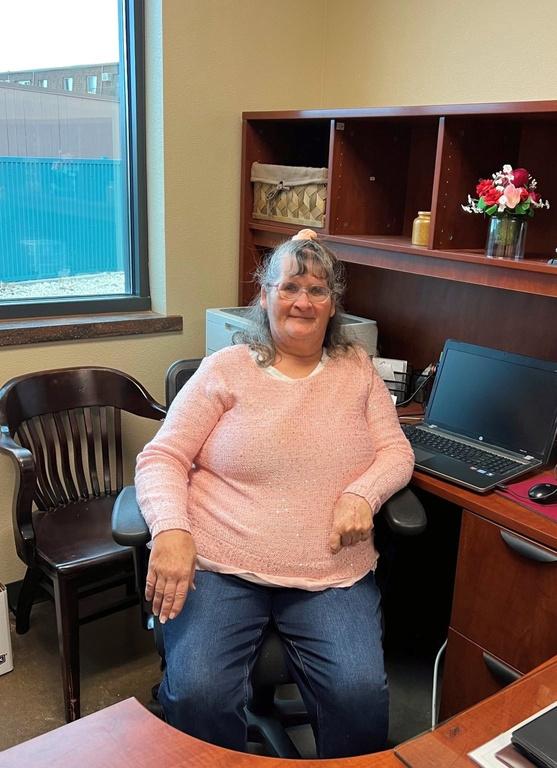
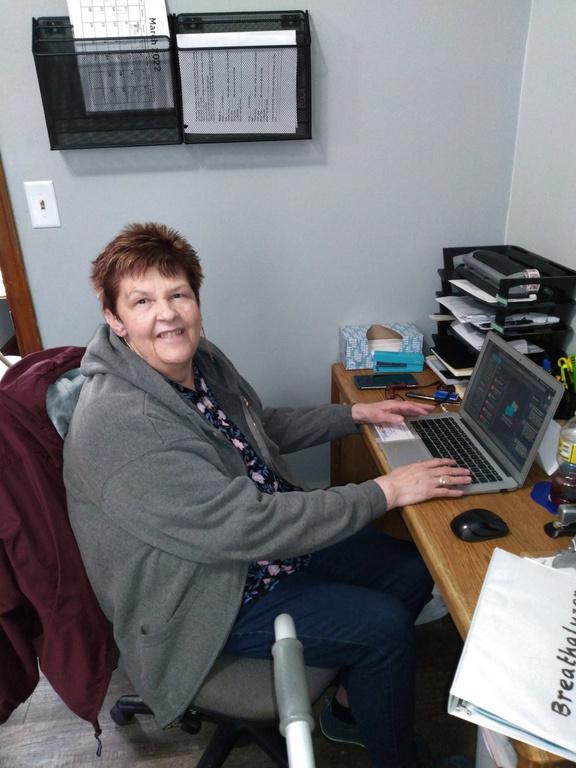
“When I applied to this program, I felt defeated. The job-hunting process has changed so much from the earlier years Beginning with my very first host site to the last one, the things I learned were invaluable This program teaches self-worth for the aging population that still wants to work,” said NICOA SCSEP participant Jacqueline Lewis.
“The staff will listen to your concerns and guide you in the best direction. They provide workshops and interview techniques along with the on-site training to better prepare you to reenter the workforce This program is a confidence-builder; at 55 and over you can step out and succeed I am now employed fulltime thanks to this program. If you have experienced barriers to employment, start here for help in overcoming them and success in job search ”
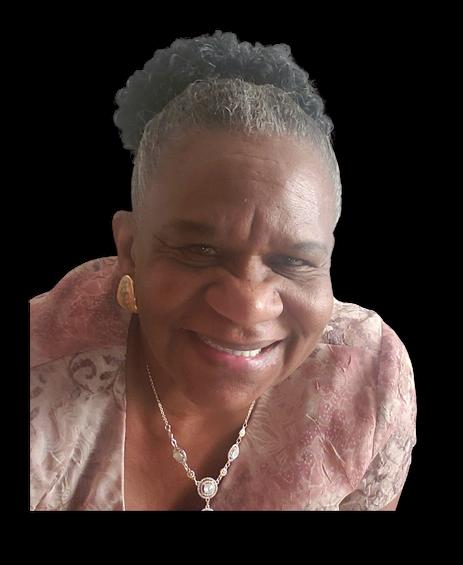
GetSetUp: Live classes for elders
NICOA has partnered with GetSetUp, a virtual social learning platform designed specifically to help elders bridge the digital divide and offer job skills training for eligible Senior Community Service Employment Program (SCSEP) participants.
SCSEP is the only federal program for elders 55 or older and is administered by the U.S. Department of Labor under the authority of the Older Americans Act. Since 1989, NICOA has been one of 17 national nonprofit grantees providing this vital jobs training program to elders.
NICOA offers eligible unemployed Native American
community members the opportunity to re-enter the workforce in seven states: Arizona, Minnesota, New Mexico, North Dakota, Oklahoma, South Dakota, and Wisconsin
NICOA's partnership with GetSetUp provides our SCSEP participants with live interactive classes covering a range of topics like technology. All classes are taught live by experts who are elders themselves. They teach how to use software utilized by many companies so job seekers can feel well prepared
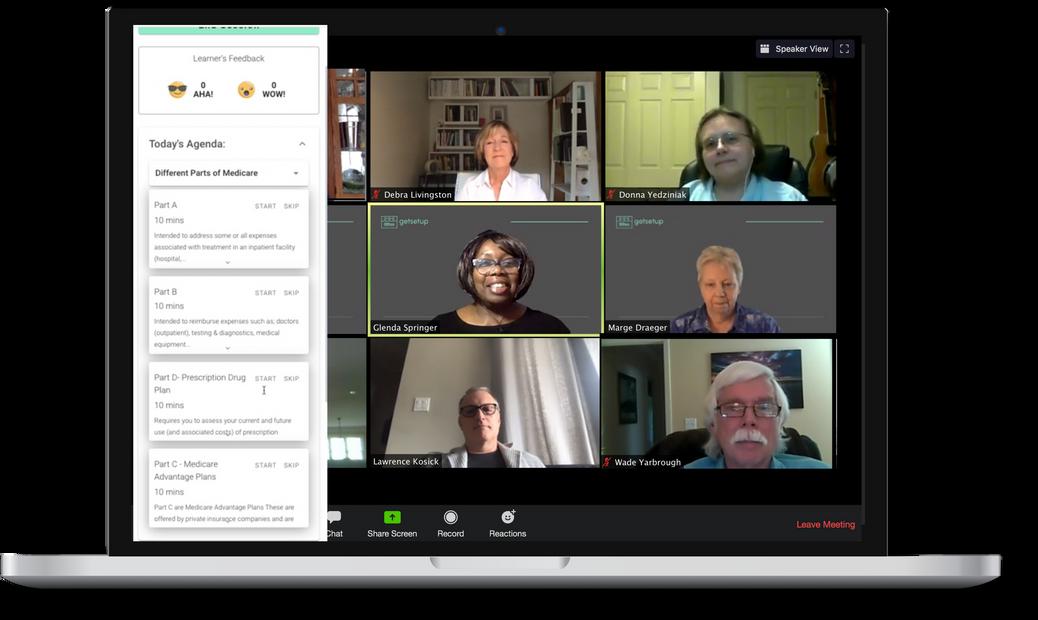
GetSetUp’s custom-built video learning interface has been tailored to elders of all tech
levels. The platform offers support in all classes to assist learners with technology and includes a booking system complete with regular reminders and after-class notes

NICOA’s SCSEP participants can easily connect with a safe community of over 4 4 million peers globally In addition to job skills classes, participants can choose from a catalog of over 4,000 classes that are available anytime from the comfort of their homes.
If you would like to learn more or apply to become a NICOA SCSEP participant and enjoy the benefits of GetSetUp, call (505) 292-2001 or visit www nicoa org
Barrier-breaking success
Juan Rico joined NICOA’s Senior Community Service Employment Program (SCSEP) to help him get back into the workforce. He trained as a cashier with a wonderful host agency called 2nd Chances Thrift Store in Bismarck, North Dakota
He has a great attitude and they loved him there. He even overcame his mobility barriers. He has a wonderful personality and would sometimes sing to his customers. With the assistance of a NICOA employee, he was able to apply for permanent positions and interview
Juan was able to find employment with a food vendor at Costco and has been happily serving customers food samples and singing ever since. His new employer was even willing to accommodate his mobility issues. He is a true SCSEP success story
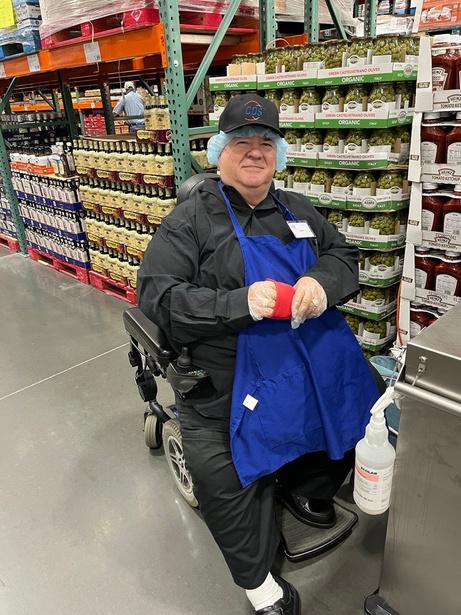
Help in North Dakota
Continued from page 5
even get a phone call So I mean, I understand their struggle with age discrimination. And I’m not saying that it’s happening, but it is happening,” Wise said.

Haderlie trained with several participating host agencies in Dickinson, including The Arc, public transit, human resources for the city, and even the police department.
“Every single place that I worked at, I had fun, I loved the supervisors, I loved the people I worked with, we had great crews everywhere that I went And I learned some valuable techniques,” Haderlie added.
In addition to the techniques she learned, Haderlie emphasizes how much fun she had working for host agencies like The Arc
“I got to dress dolls That was fun because they sell toys and puzzles and games. Everything you could imagine. So I got to touch every single book that came in,” said Haderlie.
And Haderlie has continued to nurture the relationships she made throughout training.
“You get to interact with people who are in the same situation that you might be in, then you can see the friendships form, but it also puts extra money in your pocket,” said Haderlie.
Once an individual finishes the necessary training, they work with a job developer and seek employment
“It’s really fun to watch. And you just see that their whole lives almost changed. They blossom in some of these roles. And it just brings them out of the dark,” said Wise.
Wise actually went on to work with NICOA's SCSEP program, and she later hired Haderlie. The length of time an individual trains will vary, depending on the skills a participant needs and wants to learn, with a maximum of four years To learn more about the program or to apply to become a NICOA SCSEP participant, call (505) 292-2001 or visit our website at www.nicoa.org.
SCSEP shows it's never too late for elder job seekers
Colleen Teske spent a full year applying for work without success.
The North Dakota resident had spent many years as a residential treatment advisor at the Dakota Boys and Girls Ranch Safe Home, and nearly a decade as a shelter manager at the YWCA yet could not find employment until she discovered NICOA's Senior Community Service Program (SCSEP)
According to a 2021 poll by AARP, 78 percent of elder workers say they have seen or
experienced age discrimination in the workplace. And yet two-thirds of elder workers are still open to learning new skills to stay competitive in the job market
“At NICOA we believe there is no reason why someone cannot start a new career at 60. In fact, some statistics would suggest that we are most productive from ages 60 to 70," said NICOA's North Dakota SCSEP manager "What employer would not want to benefit from the unparalleled experience, productivity and loyalty our elders provide?”


“I have attended job fairs with Colleen and witnessed how employers reacted to her age and overlooked her experience. The employers who were interested only wanted to bring her in as an entry level employee,” said NICOA's North Dakota SCSEP manager.
Through SCSEP, Teske gained valuable work experience helping individuals at Job Service of North Dakota develop their resumes. She became known for her
Continued on page 10
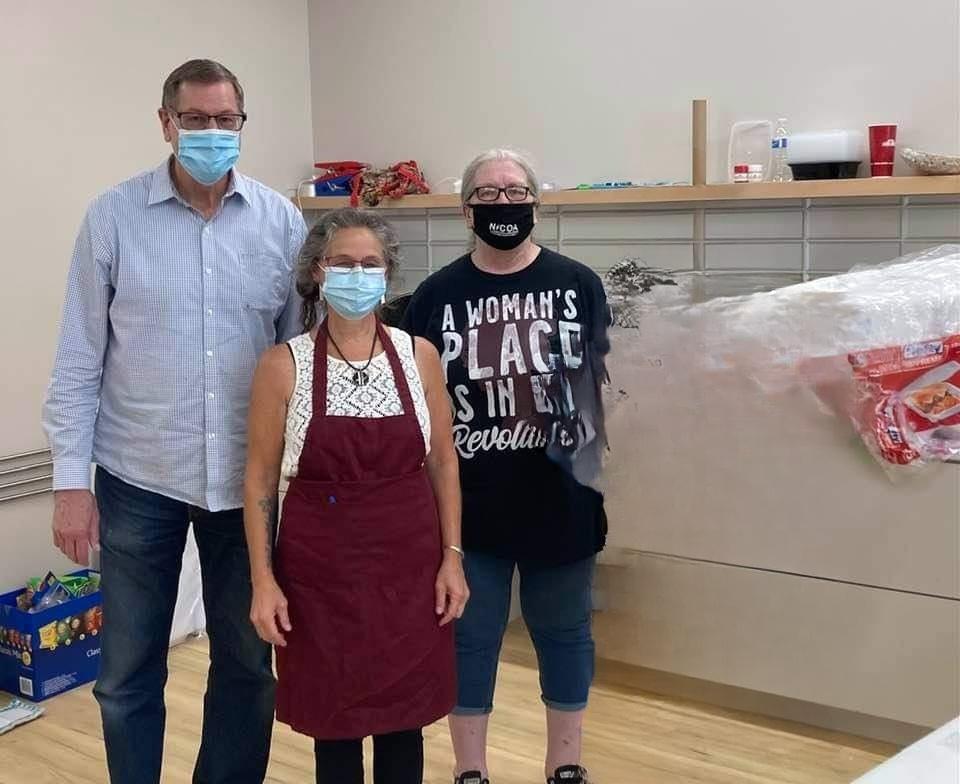
Thank you to our host agencies

NICOA's Senior Community Service Employment Program (SCSEP) works with elders to find employment in their communities to become self-sufficient.
2nd Chances Thrift Center in Bismark, North Dakota, is a great
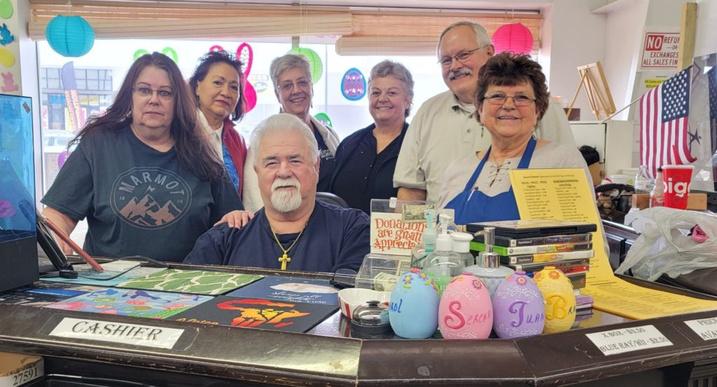
example of how the program works in our communities! Carol Schumacher started out as a program participant and soon became the assistant store manager. With her work experience, she was able to gain the skills that allowed her to apply for the position
Store Manager Brad Wahl is a big supporter of NICOA's SCSEP and the progress of the participants placed there. Employers like these make it possible for SCSEP participants to gain the necessary selfconfidence, skills and job opportunities.
NICOA would like to take this time to thank all the employers we work with and let them know how much their contribution means to us and the participants we serve If you are a nonprofit or governmental agency and would like to find out more, call 505-292-2001 or visit www nicoa org
SCSEP shows it's never too late
Continued from page 9
willingness to help those with language barriers. She also worked directly with other SCSEP participants as a participant assistant to develop employment plans Teske’s expertise and experience finally paid off with full-time employment as a case manager with the Southeastern North Dakota Community Action Agency
“The moment I was offered a job it felt like a physical weight was lifted off my shoulders,” said Teske Teske’s expertise and experience finally paid off with full-time employment as
a case manager with the Southeastern North Dakota Community Action Agency.
“We are losing one of our best participant assistants but thrilled to see her transition to a sustainable employment home,” said NICOA's North Dakota SCSEP manager. “It’s exciting to visit with Colleen and hear her plans for setting aside retirement income and shopping for new work clothes!”
About one-third of the American workforce is over the age of 50 According to AARP, 49 3 percent of elders (55 and above) seeking employment have been out of work for six months or more.
Our elder population is only predicted to expand: In 1950 only about 8 percent of the population was 65 and older, while in 2019, that demographic increased to 16 5 percent and is expected to reach 22 percent by 2050, according to the U.S. Census Bureau.
At NICOA, we help elders find work, develop new skills and talents, and build their financial security by taking advantage of SCSEP.
To learn more about the program, why it’s important, how to qualify, and what it can do for you, call 505-2922001 or visit our website at www.nicoa.org.
TARC

NICOA’s Technical Assistance and Resource Center (TARC) provides outreach and education on the unique needs of American Indian and Alaska Native elders and caregivers to Native elders, the aging network, and Native focused organizations and other diverse aging groups.
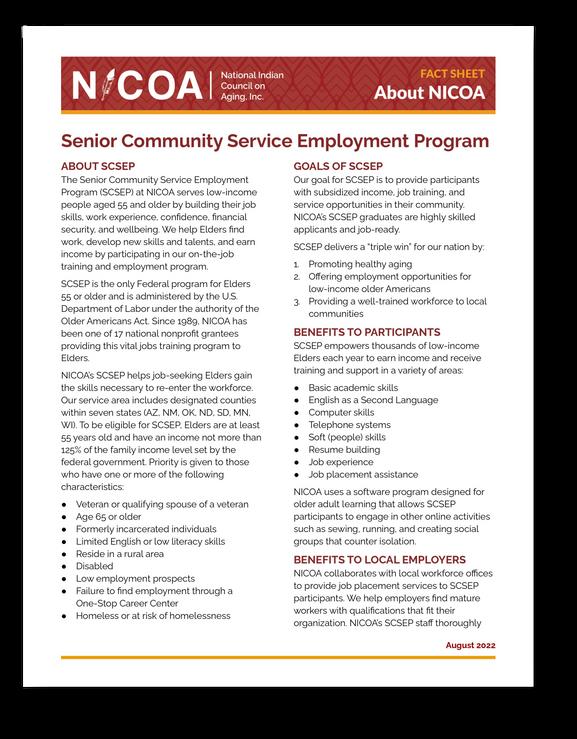

Our website hosts a wealth of information, resources and personal narratives, as well as over 20 fact sheets about our services and the health, social and economic issues affecting Native elders We offer electronic and direct contact training modules for nonNative service providers on working with tribes and Native elders, as well as a downloadable toolkit for Native people of all ages
living with disabilities.
From initiatives focused on diverse family caregiving to resources that foster disability inclusion, NICOA explores the issues affecting Native elders and devises innovative approaches to address these concerns.
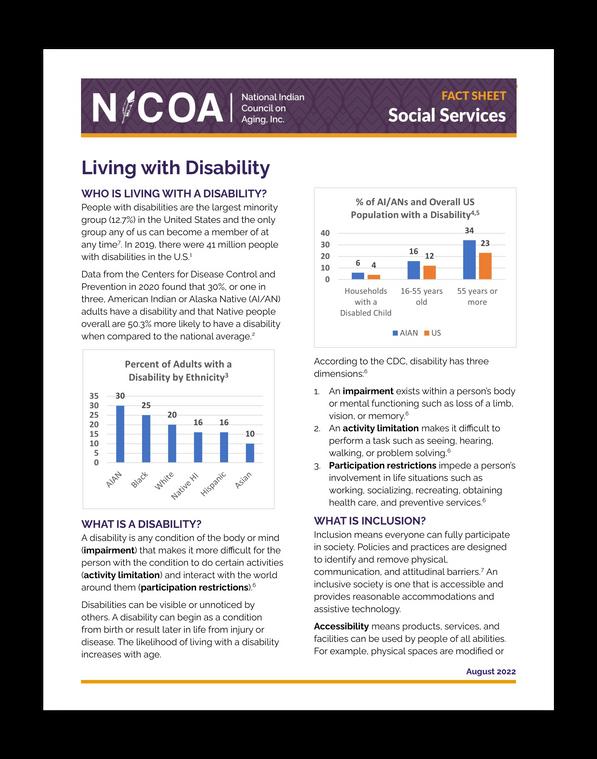
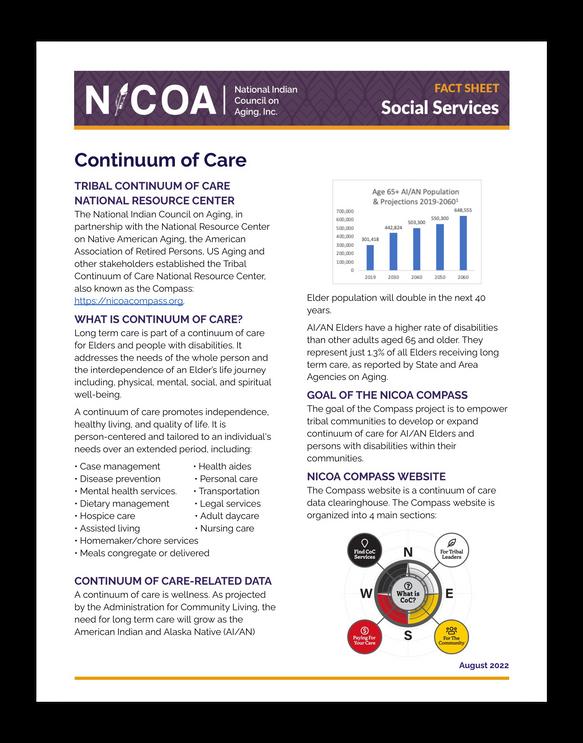
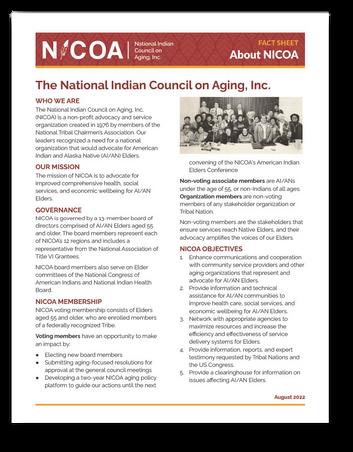
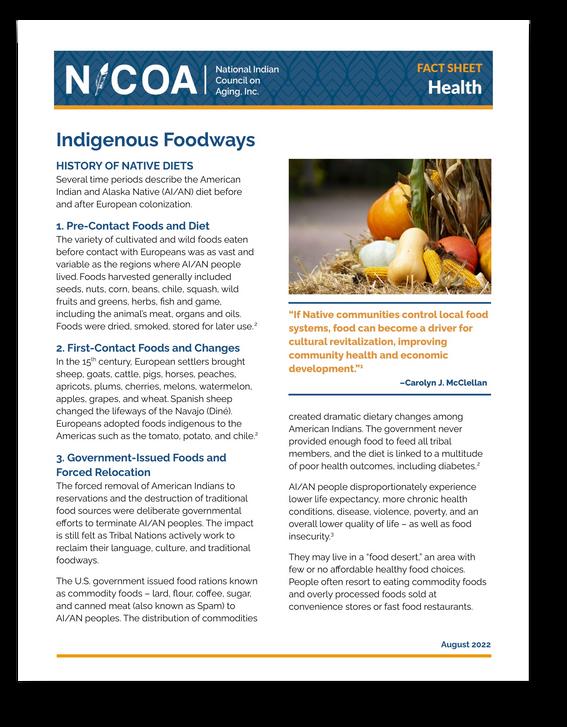
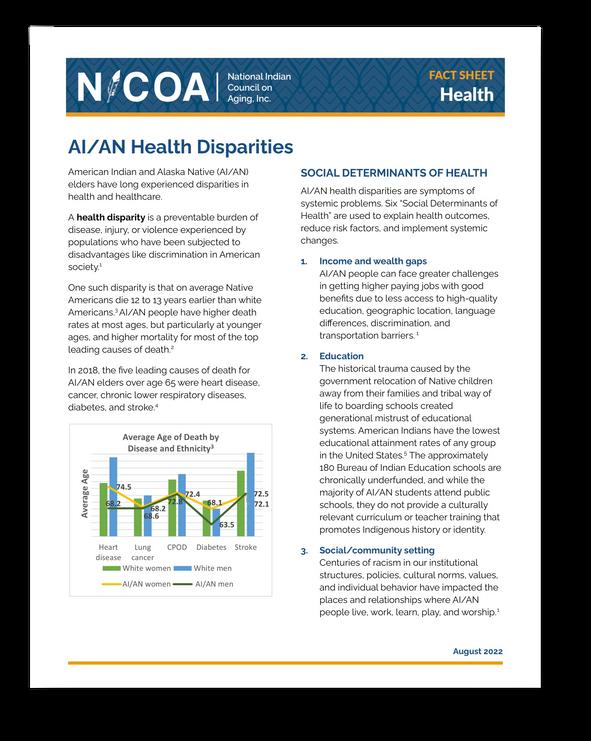
Within these pages, you will find a wealth of information and resources that showcase the diverse ways in which NICOA is working to positively impact the lives of elders and the families that make up Indian Country
20+ fact sheets available online
Rebecca Owl Morgan
Project Coordinator
Disability in Indian Country
People with disabilities are the largest minority group (12 7 percent) in the United States and the only group any of us can become a member of at any time In 2019, there were 41 million people with disabilities in the U.S.

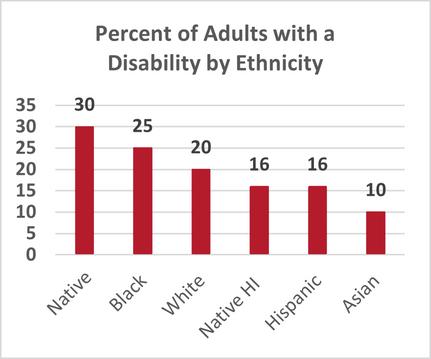
Data from the Centers for Disease Control and Prevention in 2020 found that 30 percent, or one in three, American Indian or Alaska Native adults have a disability and that Native people overall are 50 3 percent more likely to have a disability when compared to the national average.
People with disabilities in Indian Country are often unserved or underserved Tribal communities face numerous barriers, including lack of funding,
employment opportunities, day programs for adults living with developmental disabilities, staff, transportation, coordination among agencies, consultation with tribes, cultural sensitivity by nonNative staff, and systems to identify people eligible for services.
To meet the needs of Native people living with developmental and/or acquired disabilities, there are four areas that can improve support and services:
Prioritize home and community-based services that may offer culturally appropriate care for Native people with disabilities
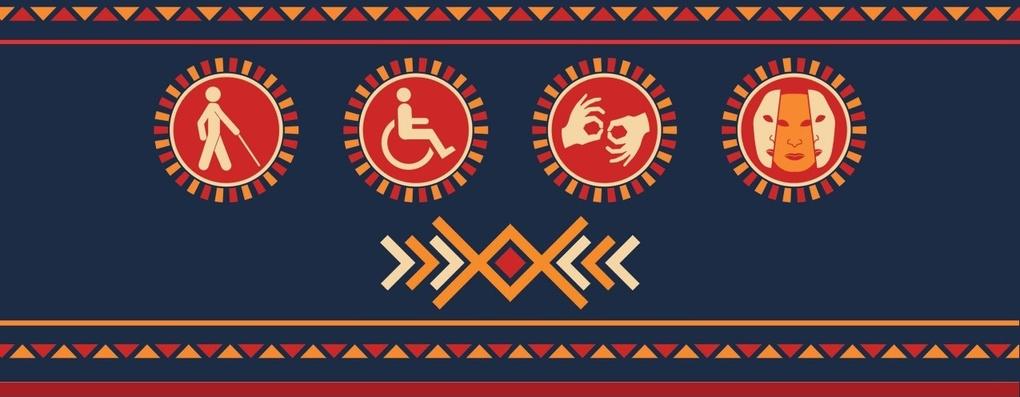
Listen to the voices of Native people receiving long-term care
Provide trauma-informed care
Consider the needs of family caregivers who provide a majority of long-term care in Indian Country
Native people living with disabilities deserve equal access, reasonable accommodations, and an opportunity to make powerful contributions to their society. Indian Country is known for making room for everybody. Take a look at your community and work to make it more accessible to our elders and others living with disabilities. Be an ally and advocate for making life easier for everyone.
Understanding Disabilities in Native Communities
NICOA has released a toolkit dedicated to increasing awareness and knowledge of the needs of American Indian and Alaska Native persons living with disabilities The toolkit “Understanding Disabilities in American Indian & Alaska Native Communities” contains information about disabilities, tribes and resources
Gathering national technical experts, NICOA updated and expanded this valuable resource, first developed by the National Council on Disability in 2003, with the latest data and more recent resources. Thanks to funding from the Administration for Community Living / Administration on Aging, this wonderful new toolkit is now available to download on our website.
Inside you will find suggestions for improving services, providing protections, and utilizing resources in local tribal communities for people with disabilities. Additional information provides overviews on federal disabilities laws, initiatives, agencies, and organizations that support work with Native individuals with disabilities and communities.
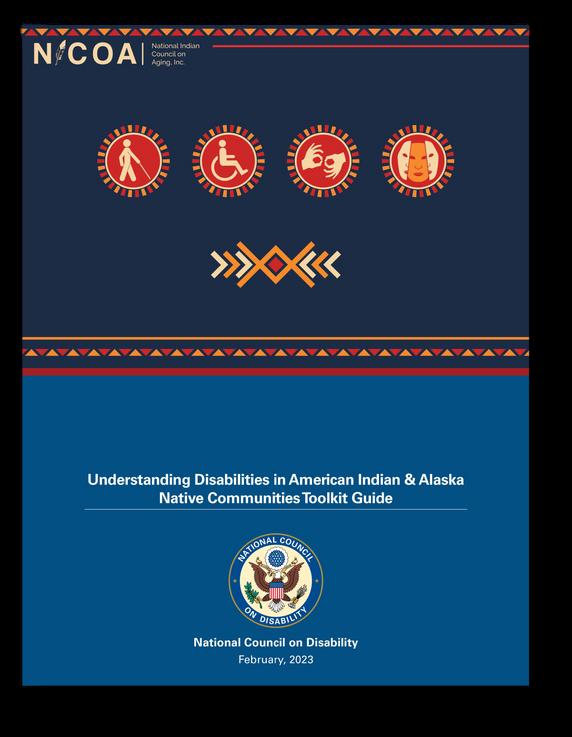
The most unique feature of this toolkit are the stories featuring people living with a disability. Visit NICOA's

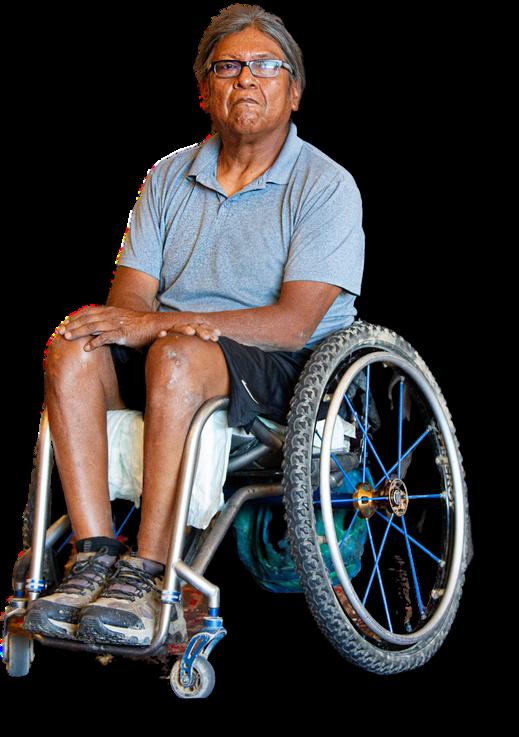
YouTube channel at www youtube com/@national indiancouncilonaging to listen as they reflect on their life, their relationship to the Native disability community, and how their disability has made life both more fulfilling and, at times, more challenging.
The information within the toolkit addresses an urgent need of Native people today and has been formatted for easy accessibility. This resource has the potential to have a high impact on its target population through the dissemination of critical information to community members, parents, tribes, and schools.
This project is dedicated to building bridges between tribes and
those in the aging network who want to help but are not sure how to begin. NICOA hopes this guide assists tribes and their allies as they work together to make good decisions about our shared future.
Find “Understanding Disabilities in American Indian & Alaska Native Communities” online in NICOA's Technical Assistance and Resource Center at www.nicoa.org.
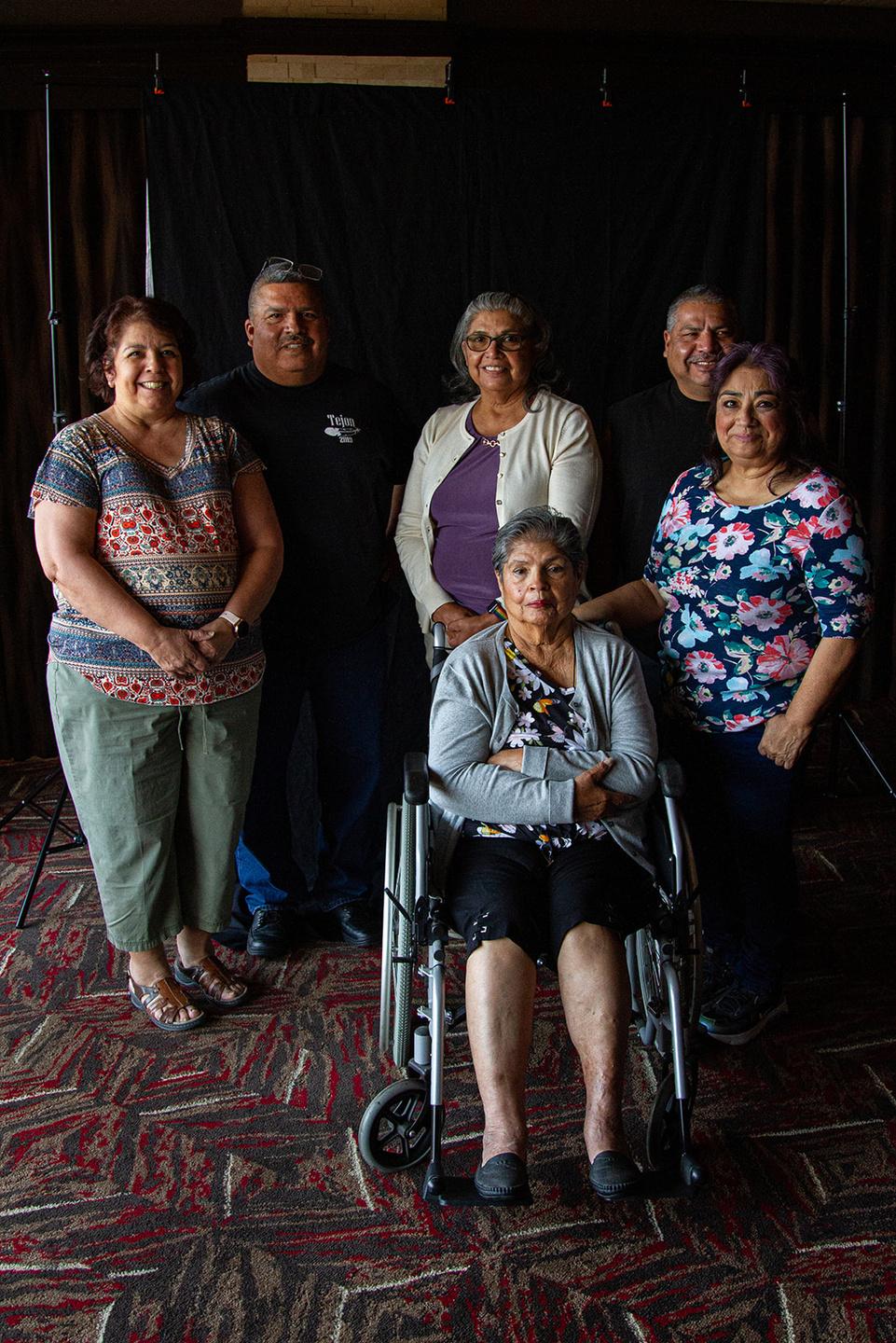
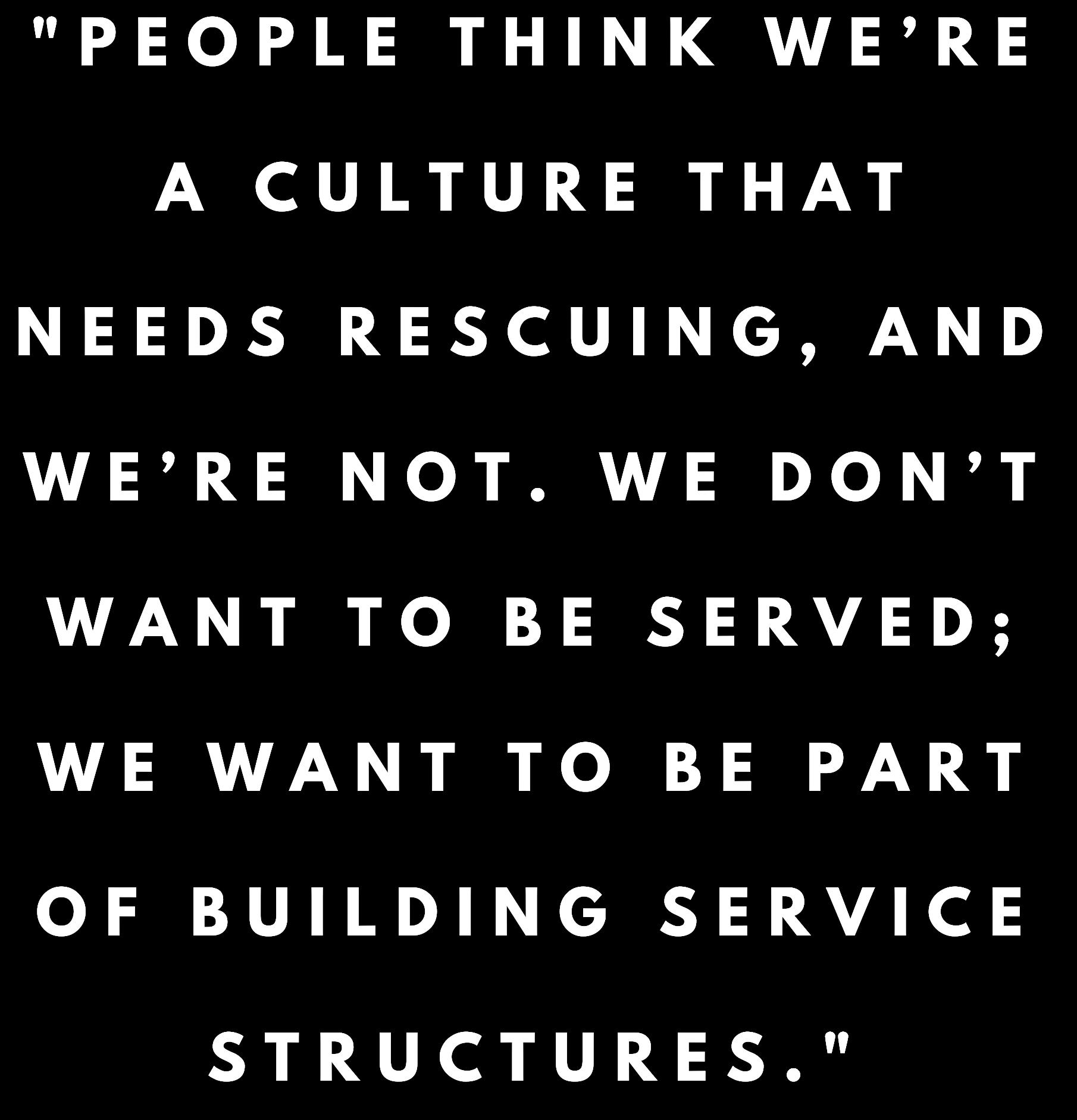

Family Caregiving
The Diverse Elders Coalition (DEC), of which NICOA is a member, was awarded a $548,678 planning grant from The John A Hartford Foundation to identify and address the unique needs of family caregivers in racially and ethnically diverse communities, American Indian and Alaska Native communities, and lesbian, gay, bisexual, and/or transgender (LGBT) communities.

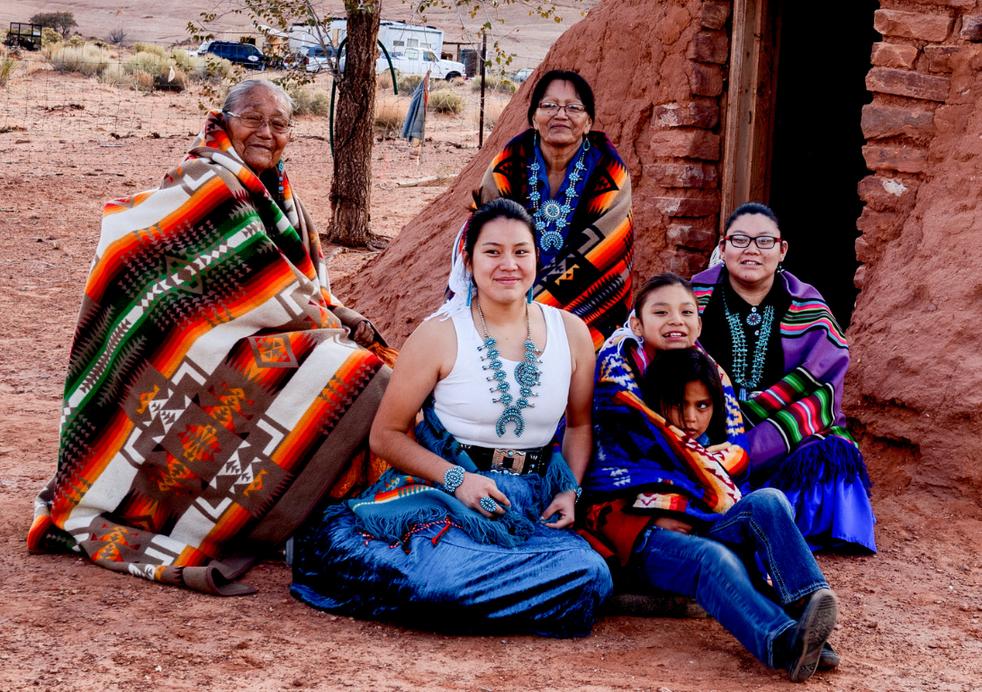
The DEC is a national advocacy coalition working to improve aging in communities of color

NICOA is a member, along with the National Asian Pacific
Center on Aging, the National Hispanic Council on Aging, the National Caucus and Center on Black Aging, SAGE Advocacy and Services for LGBT Elders and the Southeast Asia Resource Action Center.
The grant “Addressing Unmet Family Caregiving Needs in Diverse Older Communities” provided funding to the DEC to research disparities in access to linguistically and culturally competent health care and social services among those served by the coalition and to develop programs that would meet those caregivers’ unique needs. The funding provided to the DEC by The John A.
Hartford Foundation led to the creation of the "Caring for Those Who Care: Meeting the Needs of Diverse Family Caregivers" curriculum, which facilitates the development of training and educational

Continued on page 18
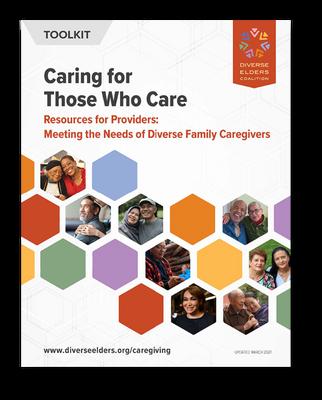
NICOA Compass: A Guide to Native Wellness
Older American Indians and Alaska Natives are a rapidly growing population group
According to the Administration on Aging, the number of Native people 65 and older has increased nearly 75 percent between 2010 and 2020

Overall, Native populations experience some of the highest rates of chronic disease and disability in the U S Due to an increase in the Native elder population, as well as the high level of disability within the
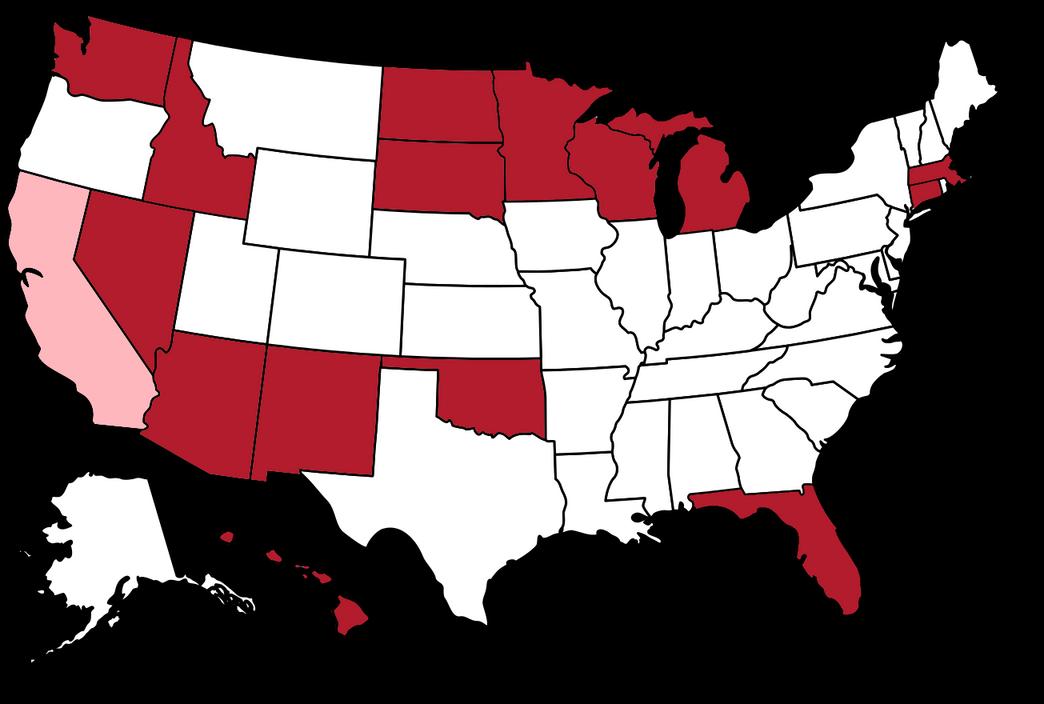
population, tribal communities are experiencing an increased need for longterm care for elders and tribal members with disabilities.
NICOA has created a comprehensive new website on elder care services in Indian Country called the NICOA Compass, www.nicoacompass.org. The website contains a wealth of information on how to begin planning for long-term care, ways to pay for services, resources and advice for caregivers, an interactive map
and searchable state directory for finding services, including Indian Health Service hospitals, tribal clinics, and urban health care facilities. It is our hope that this website empowers tribal communities to develop longterm care for Native elders and persons with disabilities in their local communities
By taking a continuum of care approach, NICOA seeks to make the idea of long-term care something each tribal
Continued on page 18
Compass Videos

In addition to excellent resources and a service directory, the NICOA Compass website holds a variety of educational and inspirational videos Find out how to best improve your program and serve your community!

Navigating LTSS: Home Health Care
Watch our video to learn about the home health aspect of long term services and supports (LTSS). Home health is a way to receive medical care without having to leave your home
It was part of the law that was implemented with Medicare to help cover the healthcare needs of elders
To receive home health services, individuals must have difficulty leaving home, need skilled care, have a physician certify and review the plan of care and have a Medicare-certified agency delivering the services.
Cheryl Engram, a registered nurse (RN BSN) with 38 years of perience 35 been solely home health industry will teach you what home health is, who pays for it and what is covered under this benefit.
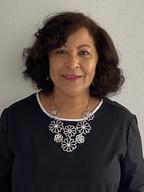
Discover what is needed to set up home health as well as the differences between setting up an agency or utilizing an already existing agency.
Navigating LTSS: Effective Program Management

This webinar provides guidance on budgeting, staff, infrastructure, sustainability, leadership styles, conflict resolution and how to coordinate funding
It is ideal for Title VI and elder program administrators, as well as anyone in the field of long-term services and supports (LTSS)
Learn the best problemsolving approaches to program management in the long-term care industry, both internally and externally. Listen as speakers Jeff Kiely and NICOA Executive Director Larry Curley reflect on a range and variety of experiences in program management.
Kiely has 40 years of experience in the fields of education, public health, regional and community planning, grantsmanship, intercultural communications, program development and administration. He owns a consulting company specializing in strategic planning and development for organizations, businesses and communities.
Assisted Living: The Nursing Home Alternative
For years nursing homes have often been seen as a distasteful living arrangement for loved ones, especially elders
They were far too regimented, based on a medical model of care and offered very little privacy, dignity or opportunity for residents to thrive
The 1980’s and 1990’s brought forth a new approach focused on a residential model with freedom to manage one’s own affairs, medications and personal schedule
David Wildgen, a multi-state licensed nursing home administrator, will walk you through the history and evolution of assisted living and teach you the components and services that it's comprised of
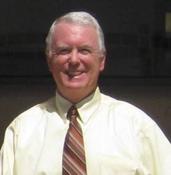
Discover the different levels of assisted living, how to qualify, what it takes to develop and operate an assisted living facility, and more Find his educational webinar and others like it on our website at www.nicoacompass.org.
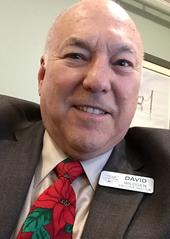
NICOA Compass
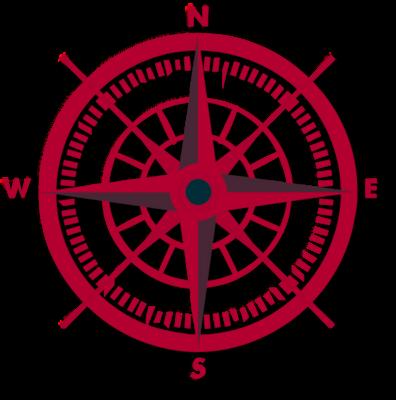
Continued from page 16
community can learn about, as we as find ways to make these service a reality for their elders As elders age they want to keep their indepe Long-term care options provide the tools they need to continue living their life as fully as possible.
“We hope that people will find the information contained in the site to be useful and transferrable to actual programs and the programming of services,” said Larry Curley, executive director of NICOA “Our hope is that there will be increased collaboration, coordination and dialogue between tribal and non-tribal programs.”
The goal of long-term care is to provide a high quality of life and the option to age as the elder chooses, either in their home or in a facility Long-term care follows the continuum of care concept which acknowledges the broad expanse of a person’s existence All parts of the individual’s journey through life are interdependent and include their physical, mental, social, and spiritual well-being.
NICOA's role is to respond to the whole person and their needs and to ensure that all parts of their being are addressed Moreover, this concept embraces the American Indian approach to addressing the whole person whether well or disabled The mission of NICOA’s Compass is to provide comprehensive data and resources on elder services, as well as policies designed to assist tribal elders, providers and tribal leadership with information to improve the lives of tribal elders
The website provides tribal leaders and community members an easier way to learn about long-term care options and find resources based on their location. You can use the website to find information on aging in place, policies and program examples, learn how to both plan for and pay for your care, find services near you, and more
“It’s important that there be a resource for tribal program administrators, tribal elders and tribal leaders; something they all can access to obtain information about services and programs in their areas as they advocate on behalf of their elders,” said Curley.
NICOA endeavors to provide tribal leaders and community members with the most accurate, up-to-date information and to share our knowledge and expertise in the field of aging The website offers user-friendly navigation, a responsive design, and an abundance of aging information. To learn more or find services near you, visit our website at www.nicoacompass.org.

Family Caregiving
Continued from page 15
programming for healthcare and social service providers, policymakers and family caregivers themselves
The training curriculum teaches how to identify and address the unique needs and caregiving realities of Native caregivers Participants will gain an understanding of how culture impacts Native caregivers' perceptions of care and their health outcomes, and develop skills to deliver Native-competent, person-directed care to improve health outcomes among Native caregivers
Visit our website at www.nicoa.org to download the "Caring for Those Who Care: Meeting the Needs of Diverse Family Caregivers" toolkit and use it to help your community It offers important information on what providers need to know, and key pieces from the comprehensive training curriculum
The research was conducted nationwide and was led by the elders and caregivers represented by the coalition.
Whether you’ve already attended one or more of the trainings, or this is your first time looking into what’s available to help you support diverse family caregivers, we think you’ll find these resources to be invaluable in building a more welcoming, supportive practice
Learn more or request a training at bit.ly/DECCaregivingPage.
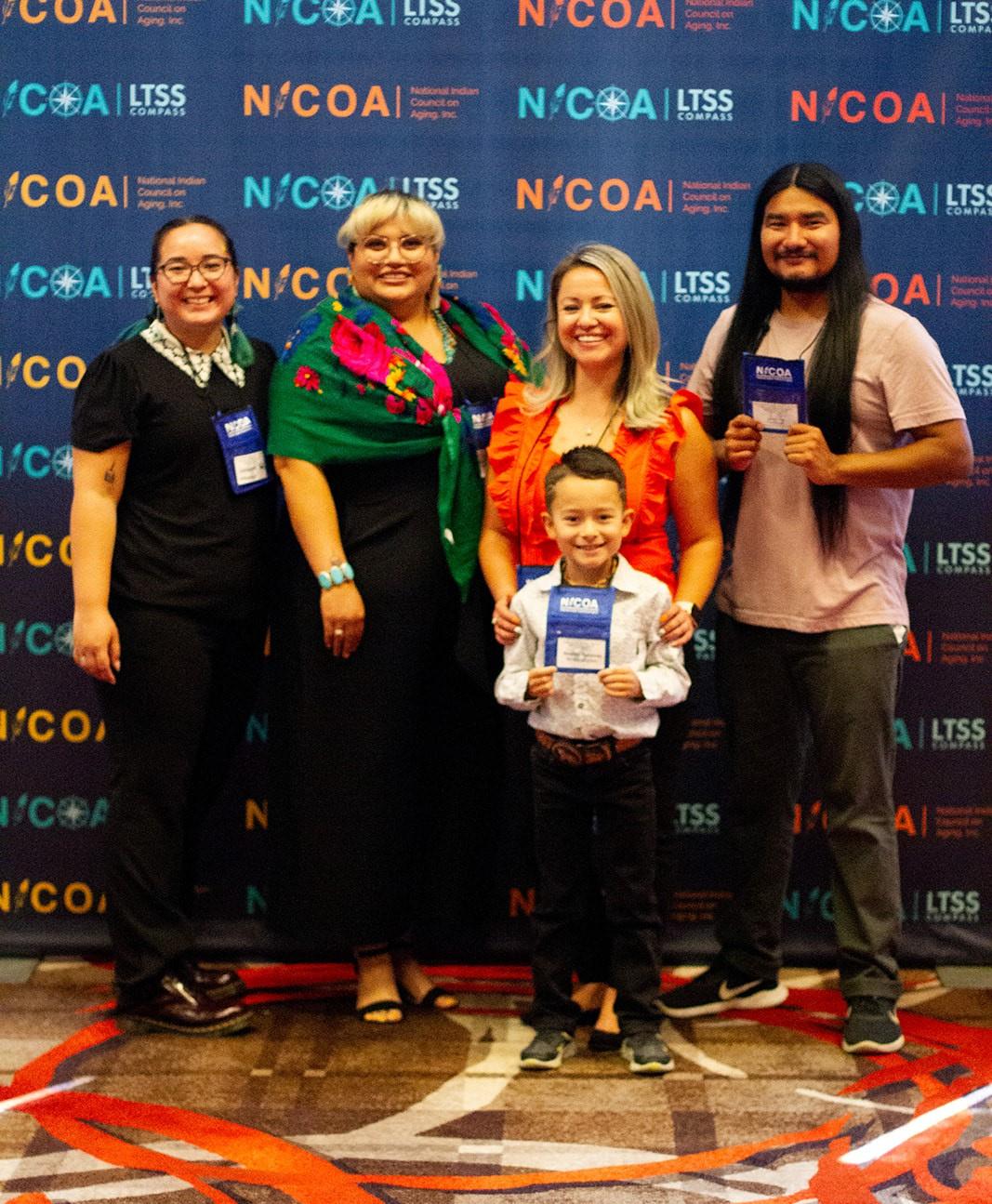

NICOA is excited to announce that its 24th conference on aging in Indian Country will take place on September 2529, 2023, at the Harrah’s Cherokee Casino Resort in Cherokee, North Carolina. We look forward to having an exciting conference and hope you’ll join us!

This year’s theme is “A Trail of Determination: Our Culture, Our History and Our Future.”
American Indian and Alaska Native elders have always held esteemed positions in their communities
They are the remnants of the cultures of their respective tribes. The cultures they embody are a testament to the history and continued existence of Native peoples
They represent the flight of
the arrow of all that is Native American, and it’s our job to carry their legacy into the future The culture, the history and the continued existence of Native people in this country is dependent on the willingness of future generations to embrace all that is Native.

This conference is the elders’ opportunity to share their wisdom, experience and knowledge with the world. It is your opportunity to carry the legacies of your elders as well as create your own

Our biennial conference is the place where elders can educate and recommend solutions to policymakers to help improve aging services across Indian Country NICOA’s American Indian Elders Conference offers the
opportunity to elevate issues in American Indian politics and legislation, as well as focus on issues such as health, safety, financial management, elder abuse, caregiving, employment, retirement and the Older Americans Act.
This will be an opportunity for tribal leaders, policymakers and tribal elders to express their needs and make policy recommendations for the vital events occurring in years to come. The events that follow our 2023 American Indian Elders Conference will shape the policies and laws that will affect Native elders for the next decade. Therefore, tribal leaders, youths, service providers and policymakers are encouraged and welcomed to learn, share and shape those policies.

2023 American Indian
2024 Presidential/ National Elections
National elections for the president and both houses of Congress will be on the ballot

The outcome of this election will affect policies and laws that will either be beneficial or detrimental to Native elders as well as Indian Country as a whole.
A new administration will have the power to select the new secretaries of agencies like the Departments of Health and Human Services, Interior, Justice, Labor, etc.
This will greatly impact the next events.

2025 Reauthorization of Older Americans Act
The Older Americans Act (OAA) was last reauthorized in 2020 with another possible reauthorization in 2025 Title VI, Title IV and Title VII all directly impact our Native elders. However, whether they will be passed will depend entirely on the elections held in 2024. NICOA is already beginning to plan for amendments to the OAA.

NICOA works closely with the Departments of Health and Human Services and Labor to advocate for grant-funded programs such as Title VI Services for Native Americans, the Senior Community Service Employment Program and others.
2025 White House Conference on Aging
The last decennial conference was held in 2015 and discussions are being held at the national level regarding the next possible White House Conference on Aging. NICOA has recommended that there be a special conference for Indian Country and referenced the “tribal consultation” requirements of former President Barack Obama’s Presidential Executive Order.

NICOA’s 2025 American Indian Elders Conference in Durant, Oklahoma could be submitted and considered as the “American Indian White House Conference on Aging.”

This year's American Indian Elders Conference will be held prior to significant events that will have an impact on American Indian and Alaska Native elders. These events will have a bearing on the format and content of the conference
Elders Conference
Every two years the American Indian Elders Conference welcomes over 2,000 attendees from all over the country Conference attendees represent Native elders, stakeholders, elected tribal representatives, government agencies and aging network providers.
NICOA’s conference is the only national conference in the country focusing exclusively on the needs of American Indian and Alaska Native elders.
It serves as a national forum for Native elders from across the country to come together to meet and receive updated information on aging in Indian Country Our biennial conferences benefit our 300,000 elders as well as the entire Native population from all 574 tribes.
The conference consists of educational presentations from tribal, state and federal organizations as well as a diverse network of aging service partners with experience in providing services to Native elders, who provide information and updates on aging services, health care, civic engagement and economic development in Indian Country.
Workshop sessions include caregiver support, elder abuse prevention, health, nutrition, transportation, disease prevention, long-term services and supports, employment and training, financial assistance and more
Keynote speakers from federal, state and tribal programs and agencies will be present to provide program updates and listen to the aging needs of American Indian and Alaska Native elders.
Our conference offers voting members the chance to actively participate in regional caucus sessions representing each of the 12 NICOA regions, participate in the election of board members, submit aging-specific resolutions, revise bylaws and develop a collective aging policy agendas for NICOA to advocate in Washington, D.C.
Members submit resolutions which are presented and voted on by all members attending our biennial conference Approved resolutions are then passed on to the National Congress of American Indians for presentation to the appropriate federal government agencies.
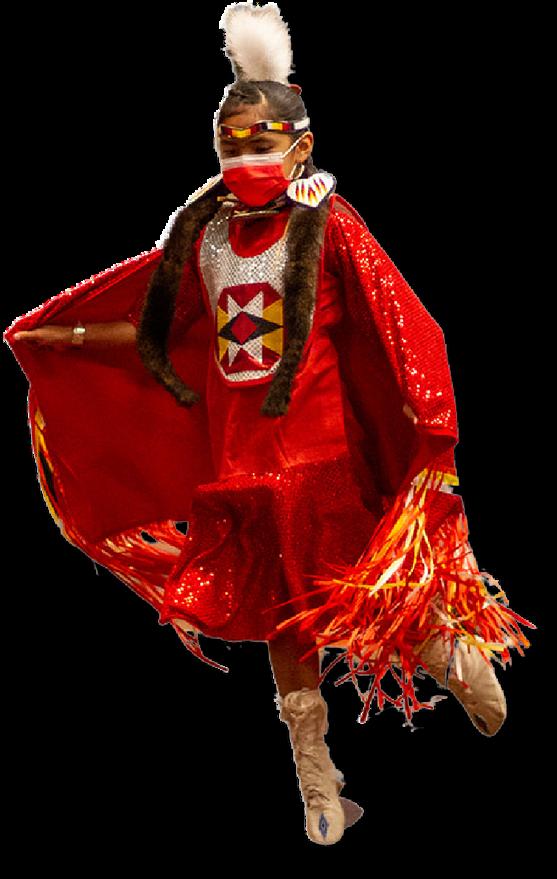
The conference is the elders’ forum; the place to voice concerns, provide recommendations on policies that are important to Native elders, and to receive up-todate information and resources to help elders age at home and in their own
communities.
We hope you’ll join us for this spectacular weeklong event in beautiful Cherokee, North Carolina! To register for the conference and/or apply for 2023-2024 membership, visit our website at www.nicoa.org.

Living Living Treasures: Treasures: Stories from Stories from Native Elders Native Elders
Beverly F Owens was the oldest of four children born in Anchorage, Alaska to Karen Rae Hopkins. For over 20 years, she has worked for the Nisqually Indian Tribe as the executive secretary of the Public Works Department
She graduated from West High School in 1984 and business school in 1987. She has continued her education, not only to improve upon her skills, but to role model the importance of learning to her three sons. She enjoys learning new things and teaching people and children the skills she knows
She moved to Washington 28 years ago and now lives in Onalaska with her husband and youngest son. She also has a beautiful 1year-old grandson, who is her pride and joy. Watching her three boys grow into honorable men has been her greatest source of satisfaction.
She has taught her children the very same tribal traditions that she learned from her grandmother Read about Beverly’s journey, the skills and wisdom her grandmother imparted, and the importance of standing up for your rights as Native people:
“Every day is a new day and we as a united gathering need to move forward to improve opportunities for Native peoples We need to push for better schooling, housing, and medical care, as well as any other issues that may arise.

We must strive to stay informed about Native issues happening throughout the country because they affect us all. What happens in Indian Country has an impact on all Native communities.
We will only have a promising tomorrow for our Tribal people if we work together as a whole. Without our unity, strength and wisdom, there will be no tomorrow for us as a people.
Our History
We need to look back at our ancestors and thank them for their hard fight. Because of them, we exist as a people today! I never forget to tell my sons where they come from, what they are, and how proud we are of their heritage
Our families are warriors and survivors. We are an honorable people. As the saying goes, ‘We are the First People of the land. We as a people have to set an example not only for our children, grandchildren, and future generations to come, but we need to show all people that we are warriors and survivors for today and tomorrow.’
I am proud to be an honorable, strong, traditional Native woman succeeding in a modern world I have instilled that pride in each of my sons, and we are now imparting that pride and tradition to my firstborn grandchild. My sons and I participate in Native
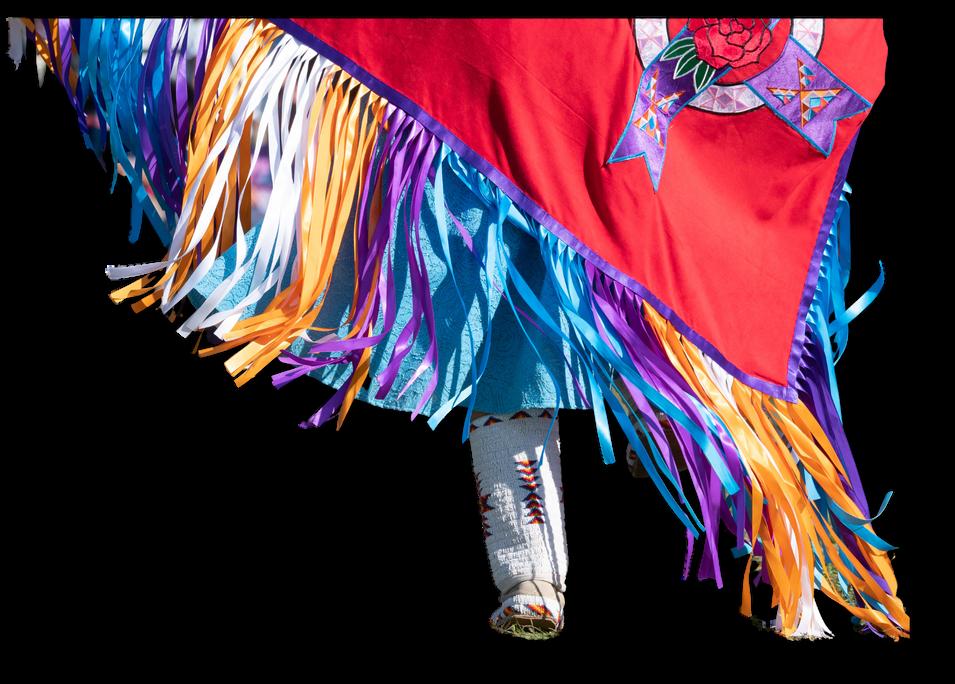
song and dance every summer during Tribal Journeys here in Washington State.
I have taught them how to hunt, gather, grow, prepare and store foods I have taught them how to tan hides, sew, and weave These skills were passed on to me by my ancestors and I am passing them on to my children, grandchildren, and members of the Native community.
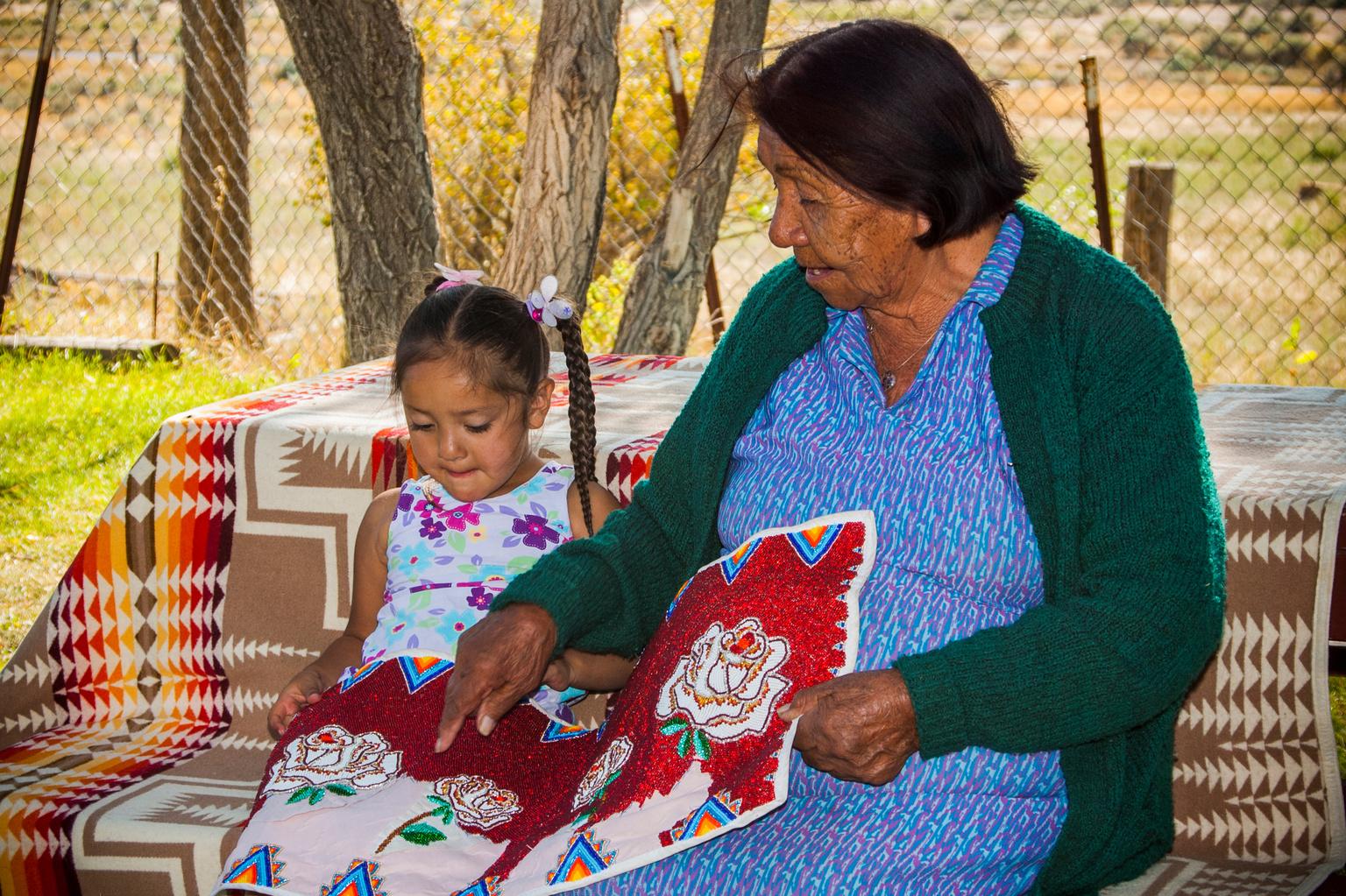
I hope to show others that our traditional teachings and skills are not lost I hope to inspire others to learn and continue sharing the survival skills and strength we have inherited. Because of the skills learned from our ancestors, we stand tall as warriors, survivors, and teachers with honor, pride, and integrity
My Grandmother
My grandmother was my greatest inspiration. She was a very strong Native elder
She stood up to everyone and everything and she always told me ‘Nobody owes you anything

in life but yourself! You have to work for what you get in life! So, work hard and be proud of what you do in your life, because only you know your true struggles and life challenges that got you to where you are today!’
I have always lived by those words to this day because of her.
She is the one who taught me how to work hard every summer once school was out I would go and stay with her for the whole summer I miss those times so much!
She taught me how to cook, gather wild herbs and vegetables, sew and make traditional regalia. When it was gathering season, she would wake me up in the early morning and we would gather roots, plants and berries and she would tell me traditional stories as well as stories about her life.
The time I spent with her was magical. I learned so much from her and will always cherish those memories She told me culture is
Continued on page 26
We want to amplify American Indian and Alaska Native voices to highlight and celebrate the diversity of backgrounds, experiences, and interests across Native communities. And you have a powerful story to share.
NICOA is looking for Native elders to speak about the experiences that have made them who they are today This is an opportunity for you to share your story in your own words not other people’s story about you, but your story about you!
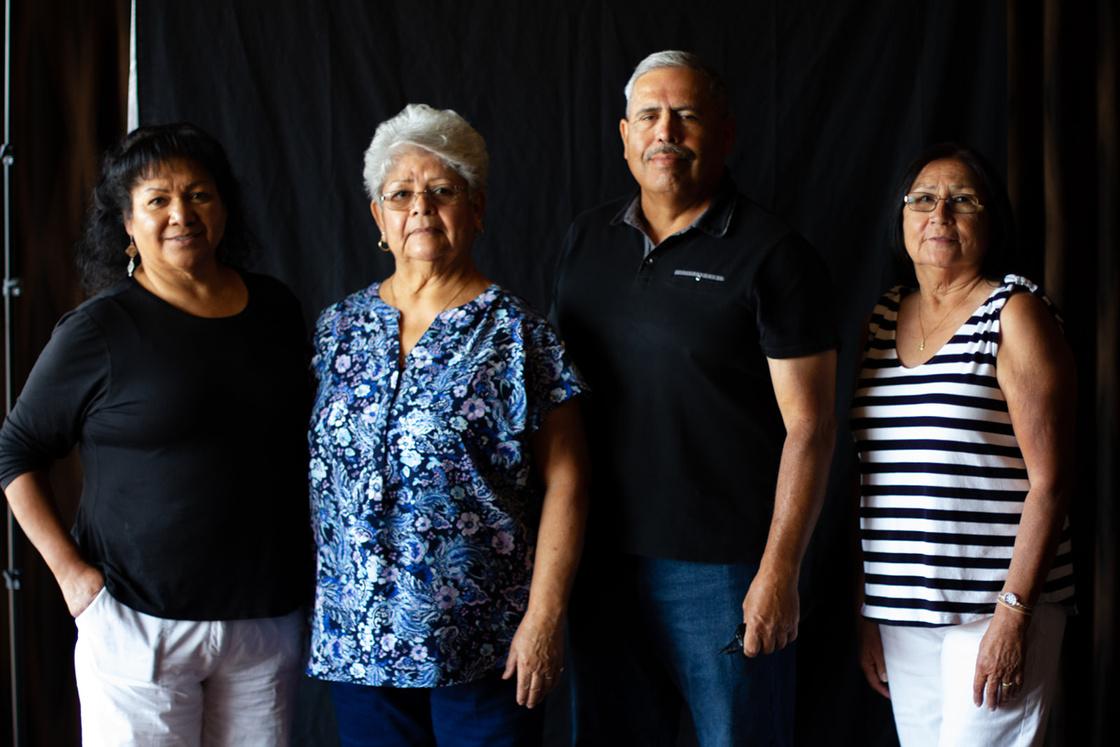
Your submission can be sent digitally, or we can arrange to interview you via Zoom Participants will be entered into a drawing to receive one of five $50 Walmart gift cards.

There is no required length or limit to your story it can be as short or long as you want it to be. You may choose to dedicate your story to someone who has inspired you or touched your life or choose to write about yourself, your family, your culture, tribe, upbringing, etc.
If you’re not sure where to begin, check out our list of writing prompts and let them inspire you to share your story Submit your stories at www nicoa org/share-your-story
Story Prompts
Write about your name Where did it come from? What does it mean?
Write about your mother, father, grandparent, etc. What would you want people to know?

Are there any funny stories or inspiring teachings that have been passed down through the generations in your community?
Where did you grow up? What do you remember from that place?
What traditions do you value and why?
Can you share a memorable moment from your childhood that reflects the beauty of your culture?
What traditions did your family follow during important celebrations or events?
How has nature played a significant role in your life?
Which traditional art forms or crafts do you enjoy the most and why?
What challenges have you faced in preserving and promoting your cultural heritage?
How have you witnessed the changes in your community over the years, and how do you think it has impacted Native traditions?
Is there a particular food or recipe that holds great significance in your family or culture?
What was the best part about growing up?
Living Treasures
Continued from page 24
taught from the heart and from family, and to always learn as much as you can

She was also a strong believer in Native rights The neighborhood that she lived in it was lowincome housing, but it was home and I always felt safe.
Once, when I was 12 years old, while my grandmother was out on her doorstep fixing a bird cage with a hammer, police officers showed up and started asking questions. At first she complied but when the officer wanted to go into her home and look around, she told them they had to first get a warrant to enter her home
I think the officer thought she was just an old Native woman who didn’t understand her rights. As the officer tried to enter my

grandmother’s home anyway, she again stated that he needed a warrant When he proceeded anyway, my grandmother hit his foot with the hammer!
She stood up and said, ‘get a warrant and then you are more than welcome in my home’ and slammed the door on him I never saw anything like that!
I was scared they were going to arrest my grandmother, but she told me that he had violated her rights by entering her home without a warrant. She even got his badge number
Thankfully, he never came back She told me to always stand up for my rights. Even though the police are the law it still does not make them right. I have never forgotten that.
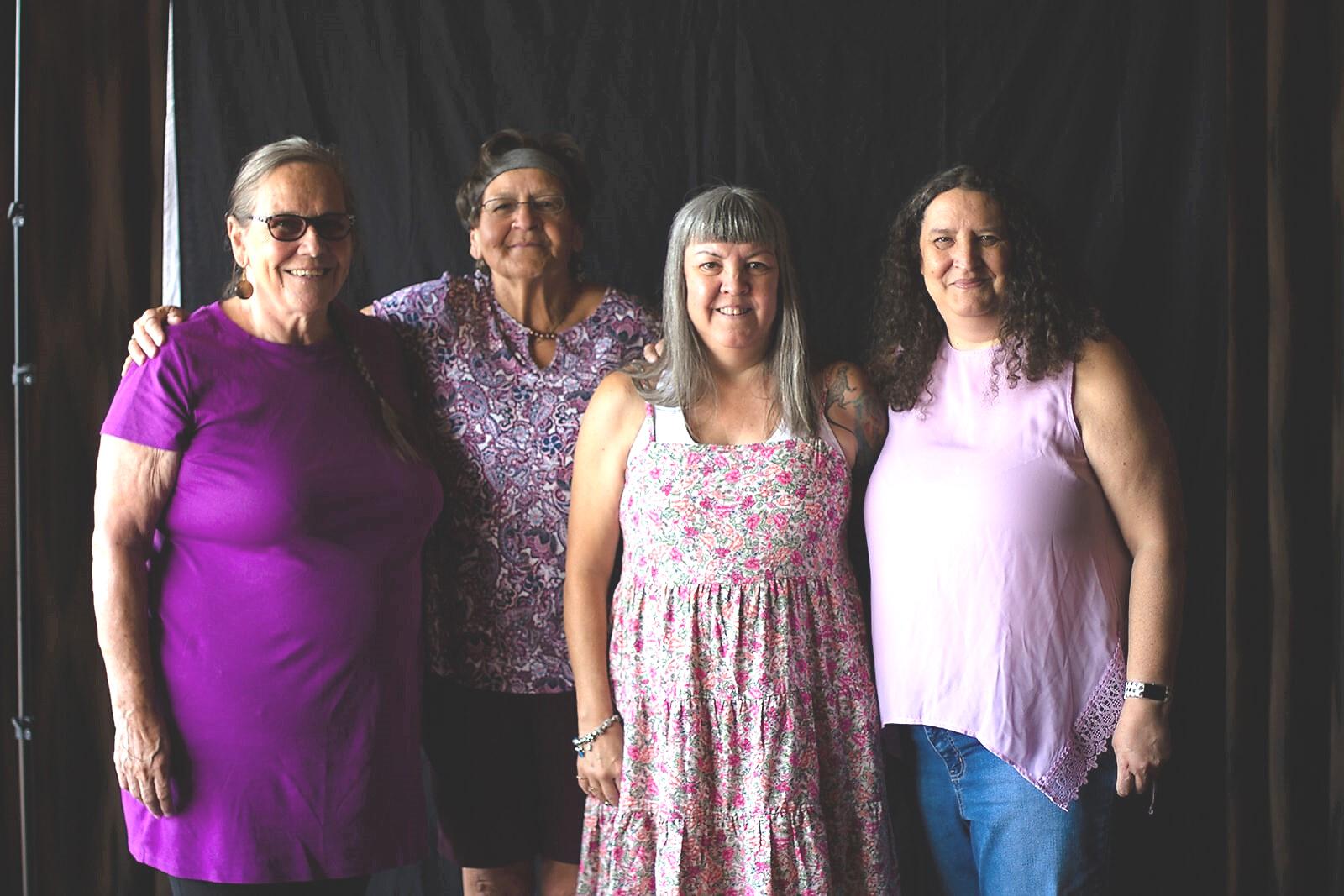
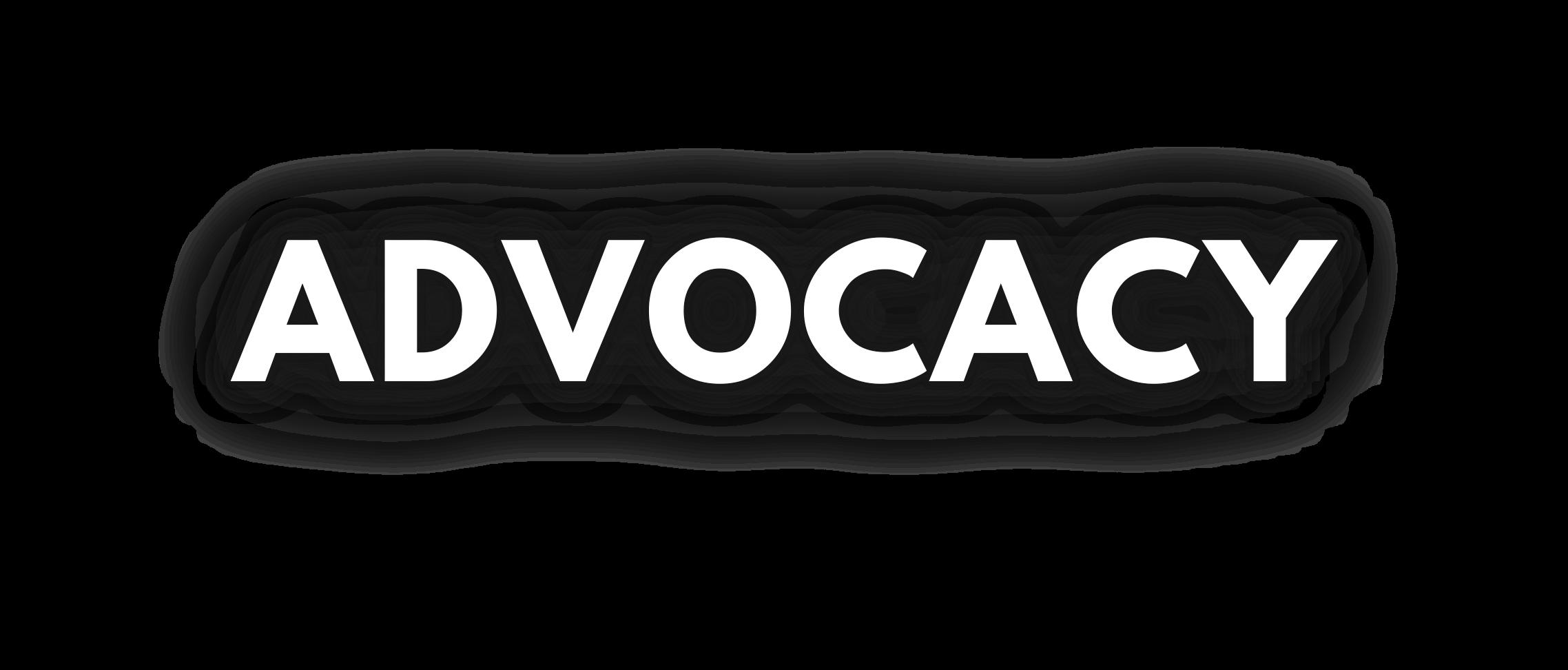
Caring for Our Wisdom-Keepers
NICOA offers electronic and direct contact training modules for non-Native service providers to learn about working with tribes and American Indian and Alaska Native elders Our trainings focus on:
Understanding the history and traditions of Native elders
Best practices for success in Indian Country
Finding creative ways to support and advocate alongside our elders
Learning more about Native people living with disabilities and the resources available to them
If you are interested in receiving one of our trainings, please contact us to discuss your needs.

“Caring for Our Wisdom-Keepers: Supporting Native Elders” lists the barriers to elder wellness and includes personal quotes from elders themselves It discusses the importance of cultural competency and provides community and traditional solutions to advocate and support our elders. This training will deepen one’s understanding of the needs of our elders and help participants learn how to meet those needs and advocate by their side
With "Caring for Native Elders: Best Practices," participants will learn about the history of Native communities post-colonization and how it impacts health outcomes. Participants will gain the skills to identify, affirm, and effectively serve Native elders with a focus on building long-term relationships It offers the opportunity to review successful community models, role play and apply their learning through discussion.
"Caring for Native Elders: History & Cultural Traditions" will teach participants to identify Native cultural traditions, as well as how to utilize key resources to incorporate Native traditions into their practice or organizational approach Participants will gain an understanding of the history of Native peoples of the North American continent.
Contact us to learn the skills and best practices to serve Native elders more effectively in your community Call 505-292-2001 or visit www nicoa org to schedule a training today!
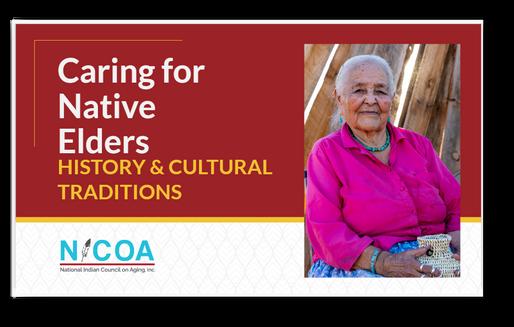

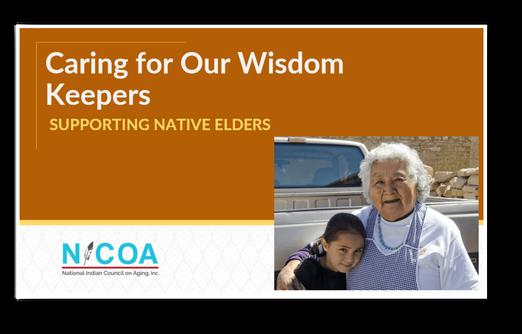
Sometimes the things we read are so fantastic we dismiss them right away. Other times they can actually cause us to stop and wonder if there could be a kernel of truth buried within.
Have you ever been misled by a Facebook post? A video on YouTube or TikTok? People have felt negatively about both the COVID-19 pandemic, and the vaccines developed to help stem the tide of infections. It can be hard to know what to believe. How can we sort out what is true and what is not? Let NICOA and our invited speakers guide you with our webinar "Misinformation in the Time of COVID-19."
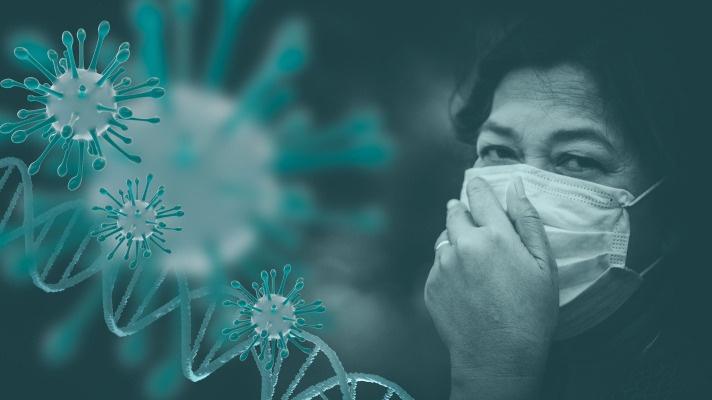
Watch our video for an overview on misinformation and listen to a discussion on how to make sense of this confusing online world we live in Discover the different types of misinformation that exist, how it’s faced in Indian Country and the best strategies to counter it to protect yourself and others

Speakers include NICOA Executive Director Larry Curley (Navajo Nation) and Project Coordinator Rebecca Owl Morgan (Eastern Band of Cherokee Indians); along with Ahmer Arif, assistant professor in the School of Information at the University of Texas at Austin; and Jason Young, senior research scientist and affiliate assistant professor at the Information School at the University of Washington Find the video and others like it on YouTube and at www nicoa org
NICOA's YouTube Channel

Visit NICOA's YouTube channel to find over 65 videos! Listen to the stories and personal narratives of American Indian and Alaska Native elders, hear from participants of NICOA’s Senior Community Service Employment Program, watch staff interviews and footage from our last American Indian Elders Conference.
Discover long-term care options and information about healthcare services for Native elders Learn about Social Security, Native caregiving, isolation, the Older Americans Act and Alzheimer’s disease in Indian Country Visit our YouTube channel at www youtube com/@nationalindiancouncilonaging
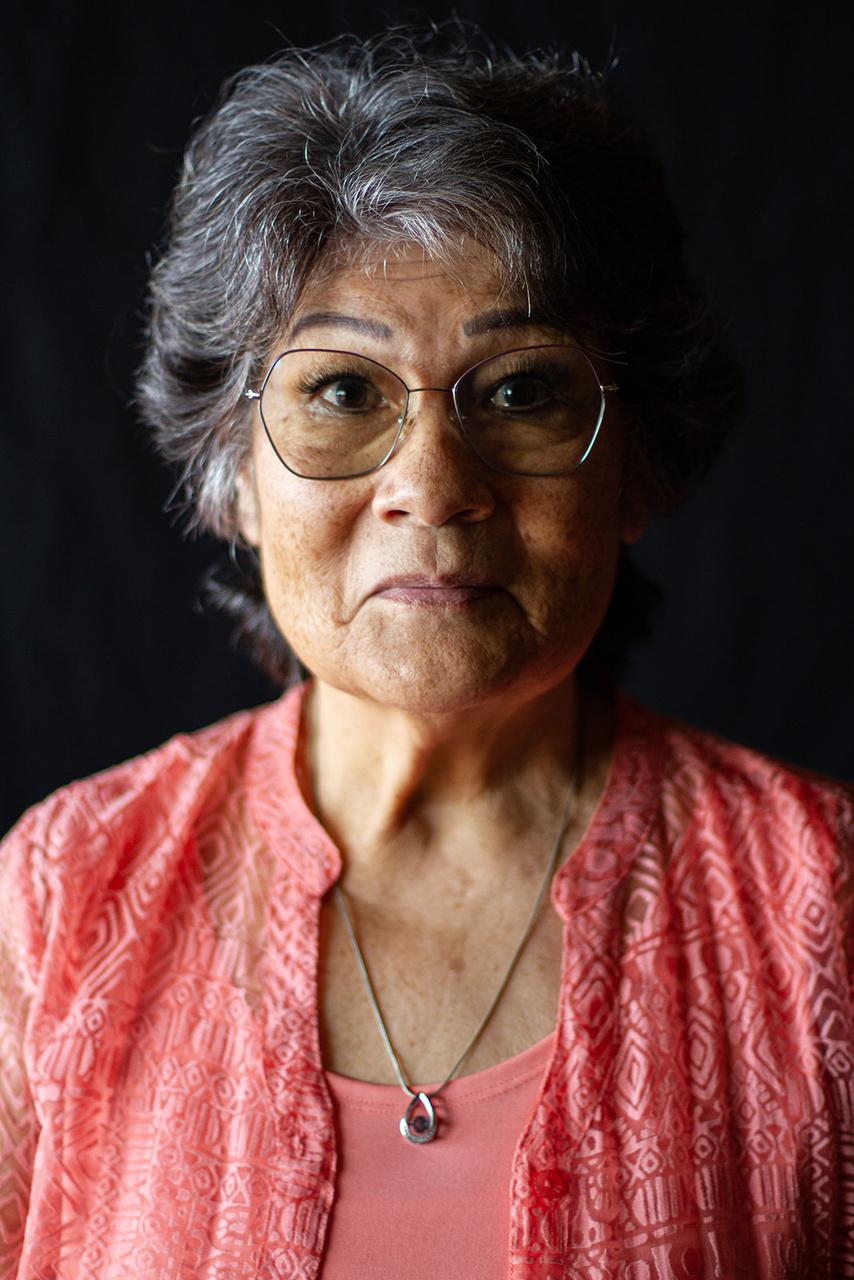

Protecting Tribal Families Golf Fundraiser
NICOA worked with AMERIND to raise over $22,000 during their 17th Annual Protecting Tribal Families Golf Fundraiser at the Santa Ana Pueblo, New Mexico last year. The tournament raised more than $40,000 for numerous families and invited
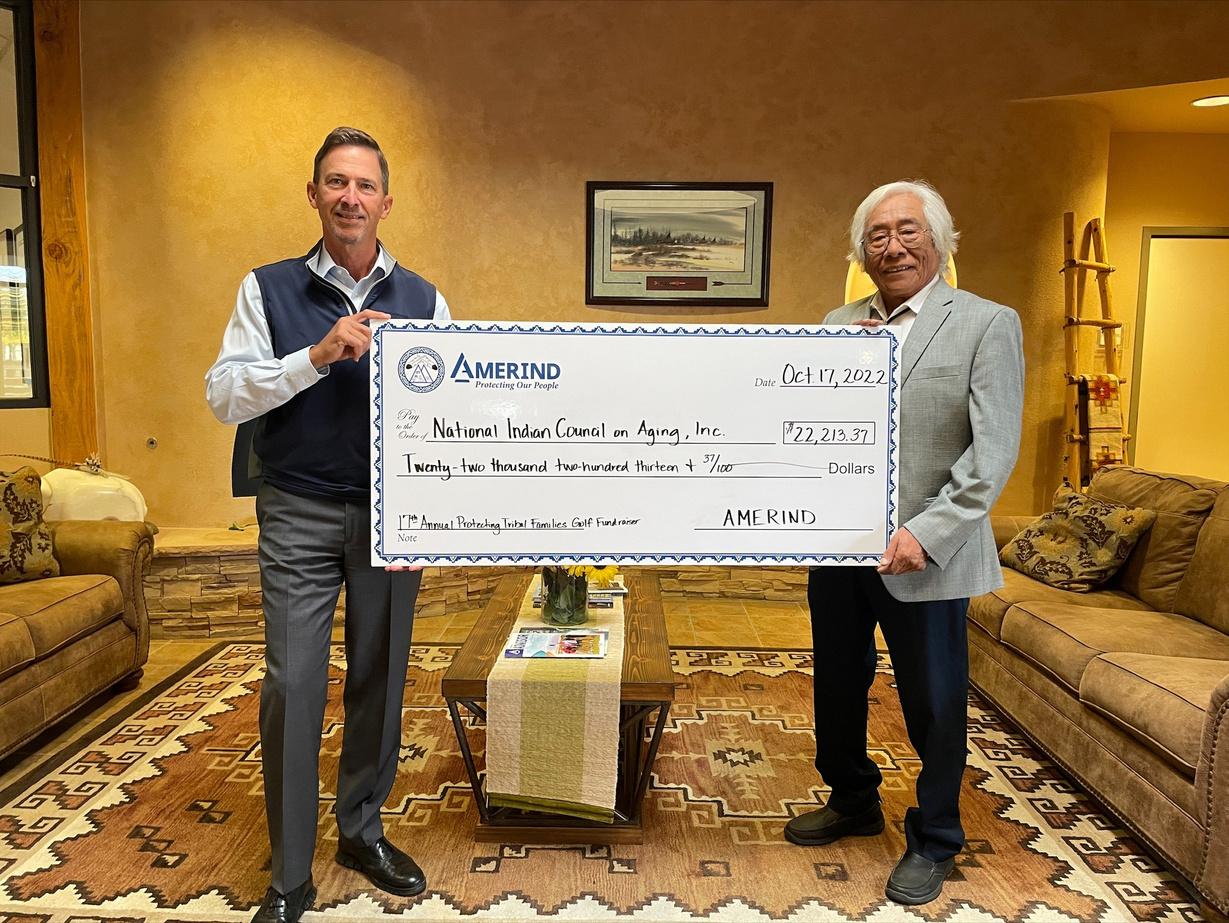
beneficiaries throughout Indian Country.
AMERIND creates affordable, sustainable insurance products and services for Indian Country, and is the nation’s only tribally owned insurance company Their

Protecting Tribal Families Fund assists American Indian families without homeowners’ insurance in rebuilding or repairing after a fire, flood, or other catastrophic event.
To learn more, visit their website at www amerind com
NICOA received a generous gift of $4 million from Philanthropist Mackenzie Scott last year. Scott, who has a net worth of more than $55 billion, also launched a charitable giving organization called Yield Giving.
The list of recipients includes many nonprofit organizations, though Scott said she’s particularly focused on supporting groups who are helping to uplift “those whose voices have been underrepresented.” This donation will help NICOA continue to advocate for improved comprehensive health, social services and economic well-being for Native elders.


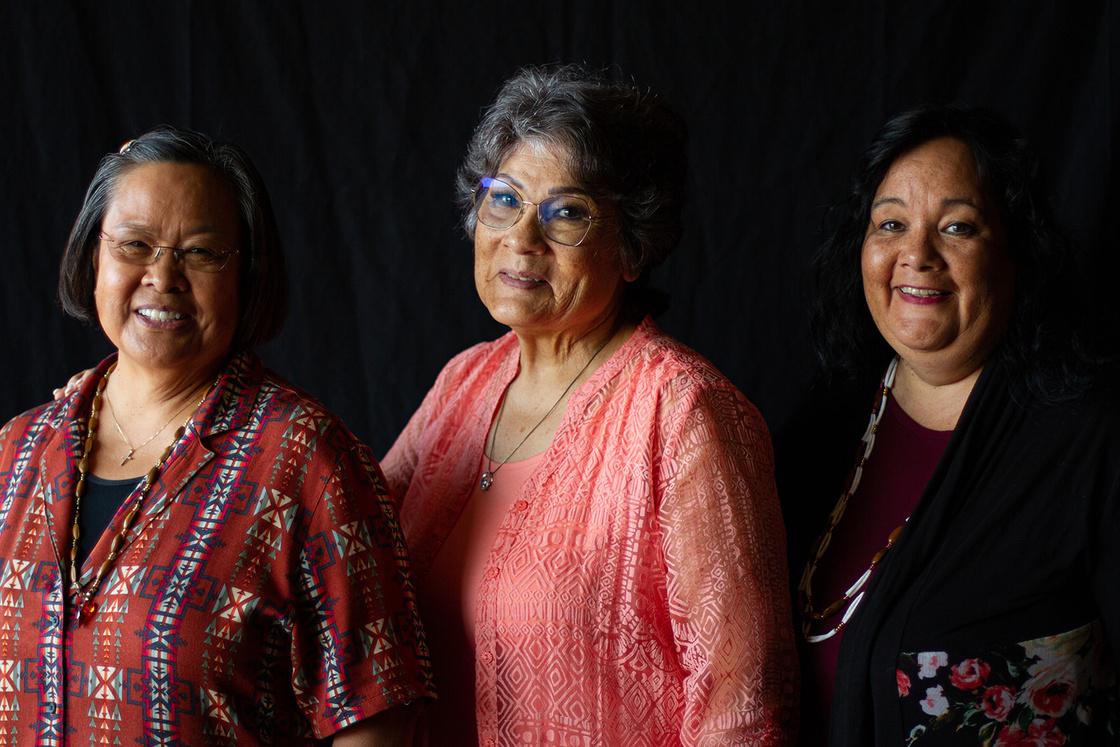
American Indians and Alaska Natives have the highest poverty rate of any group 29.2 percent as opposed to the United States as a whole at 15 9 percent, according to the U S Census Bureau Projected poverty rates for Native elders in 2030 are 10 9 percent more than twice the rest of the total population, which is projected to be 4 7 percent
NICOA works to financially empower Native elders by raising awareness of elder abuse, financial exploitation, scams and fraud, as well as bringing Native elder concerns to the aging network and other interested stakeholders. The organization integrates culturally relevant training and technical assistance to highlight barriers to services that all Native elders face and strategies for overcoming those barriers To help improve health equity among Native elders, NICOA supports policies that establish health education, awareness and prevention programs for Native elders, fund on-going research of health disparities in aging, improve health care access and quality for elders, and promote inclusion of Native people in gerontology and geriatric research.
“The gift is a recognition of the work NICOA does in addressing the health, social and economic disparities experienced by American Indian and Alaskan Native elders,” said NICOA Executive Director Larry Curley “The gift will enable NICOA to dream even bigger in the development of creative, innovative and responsive programs that create change.”
